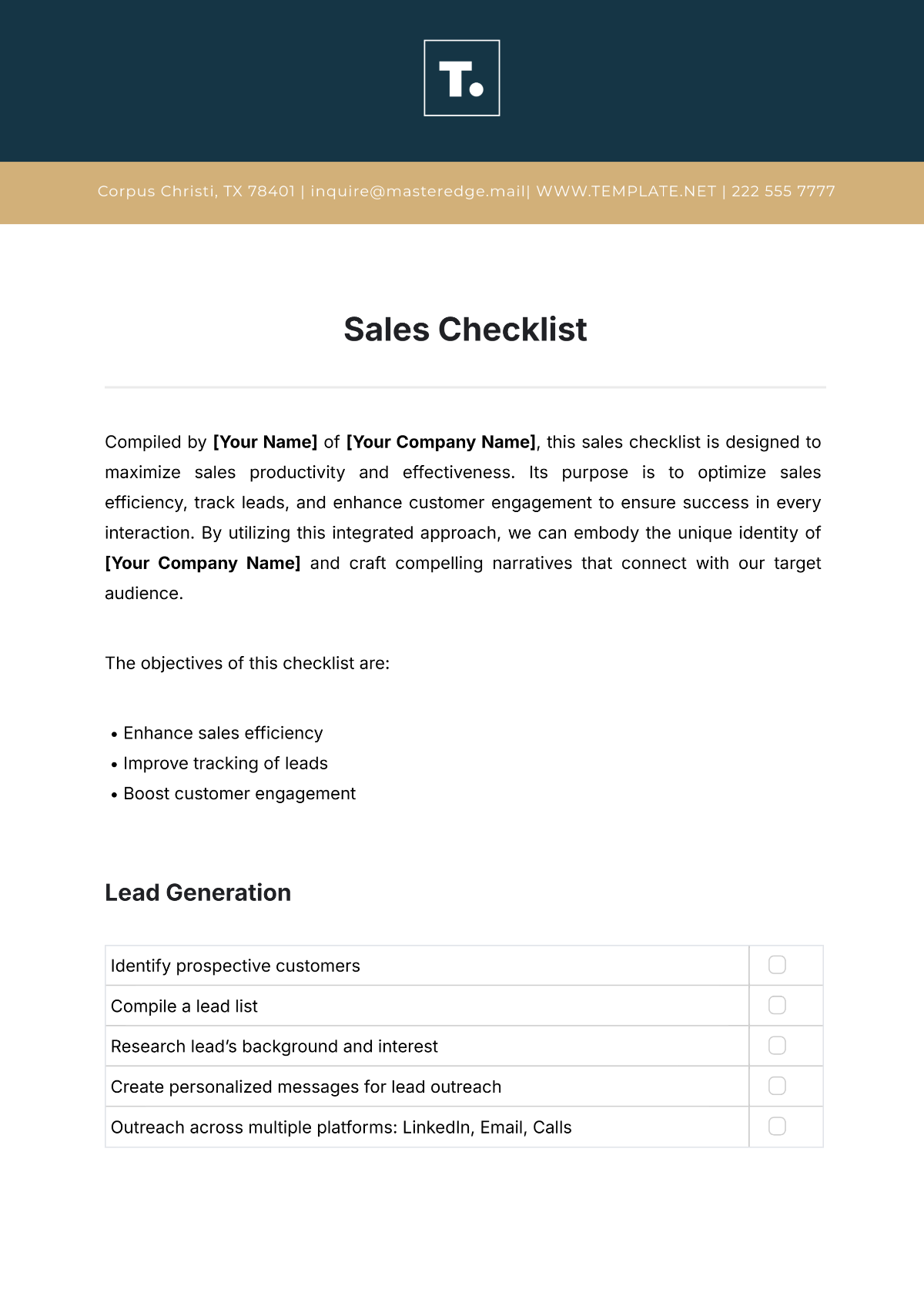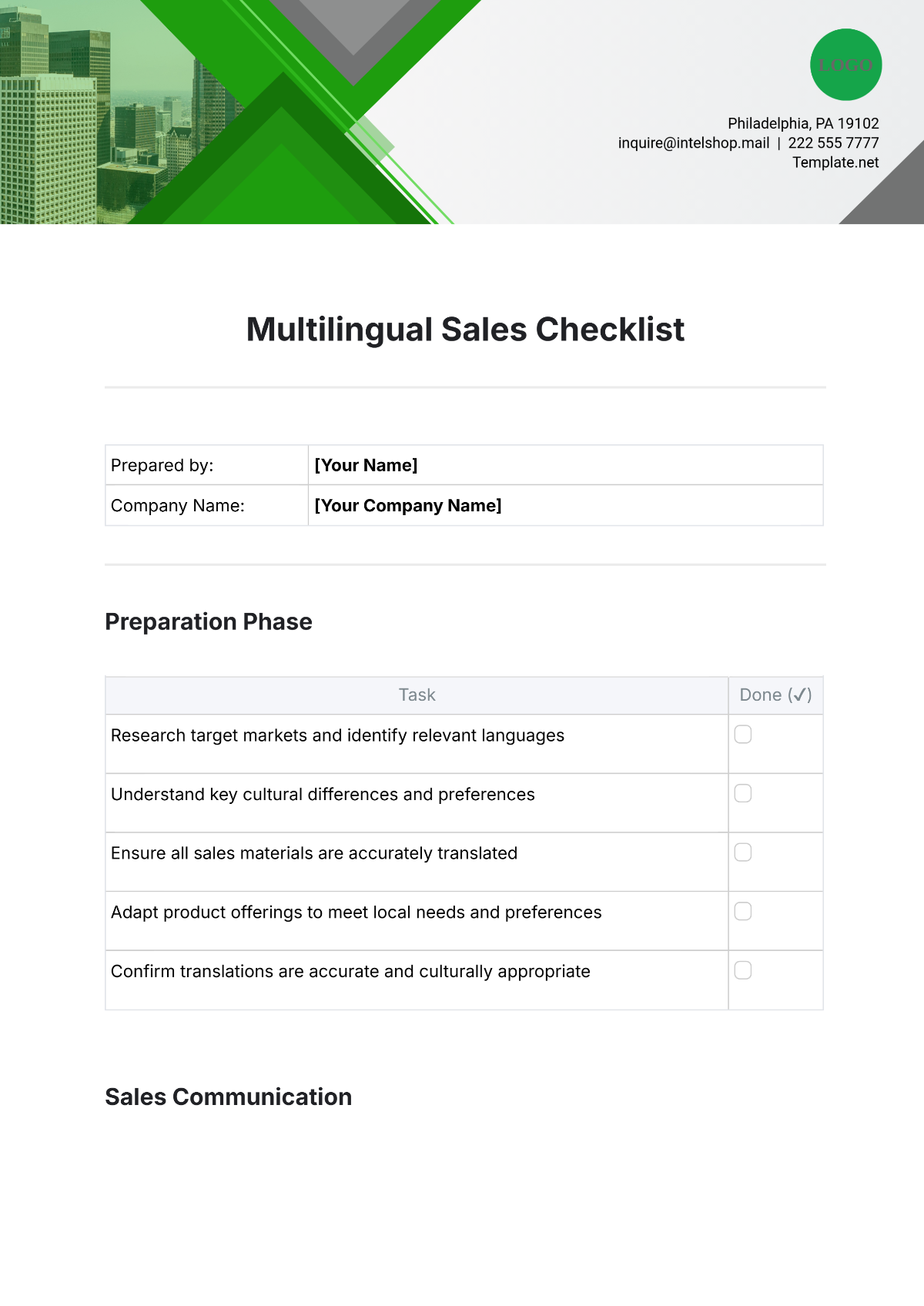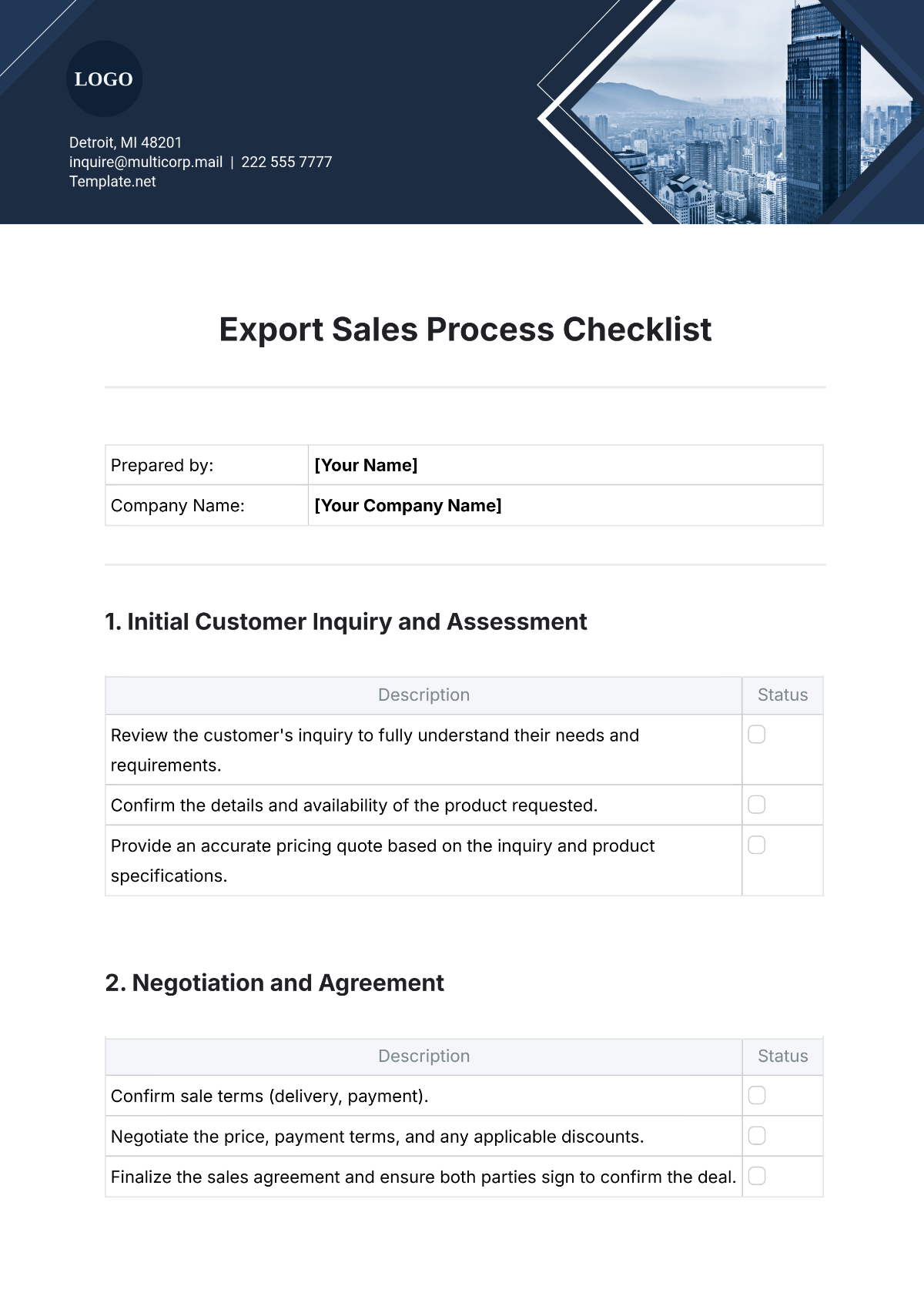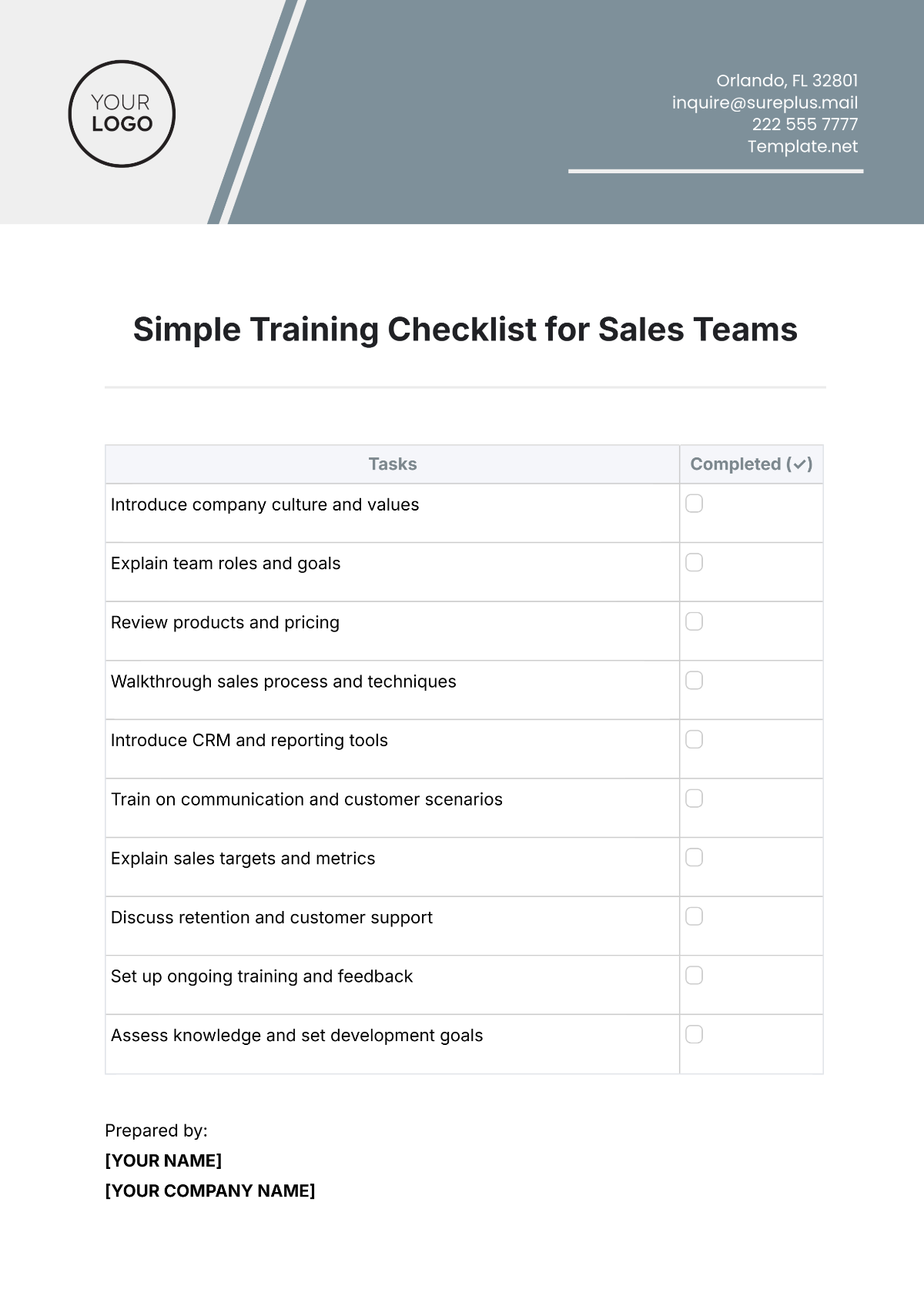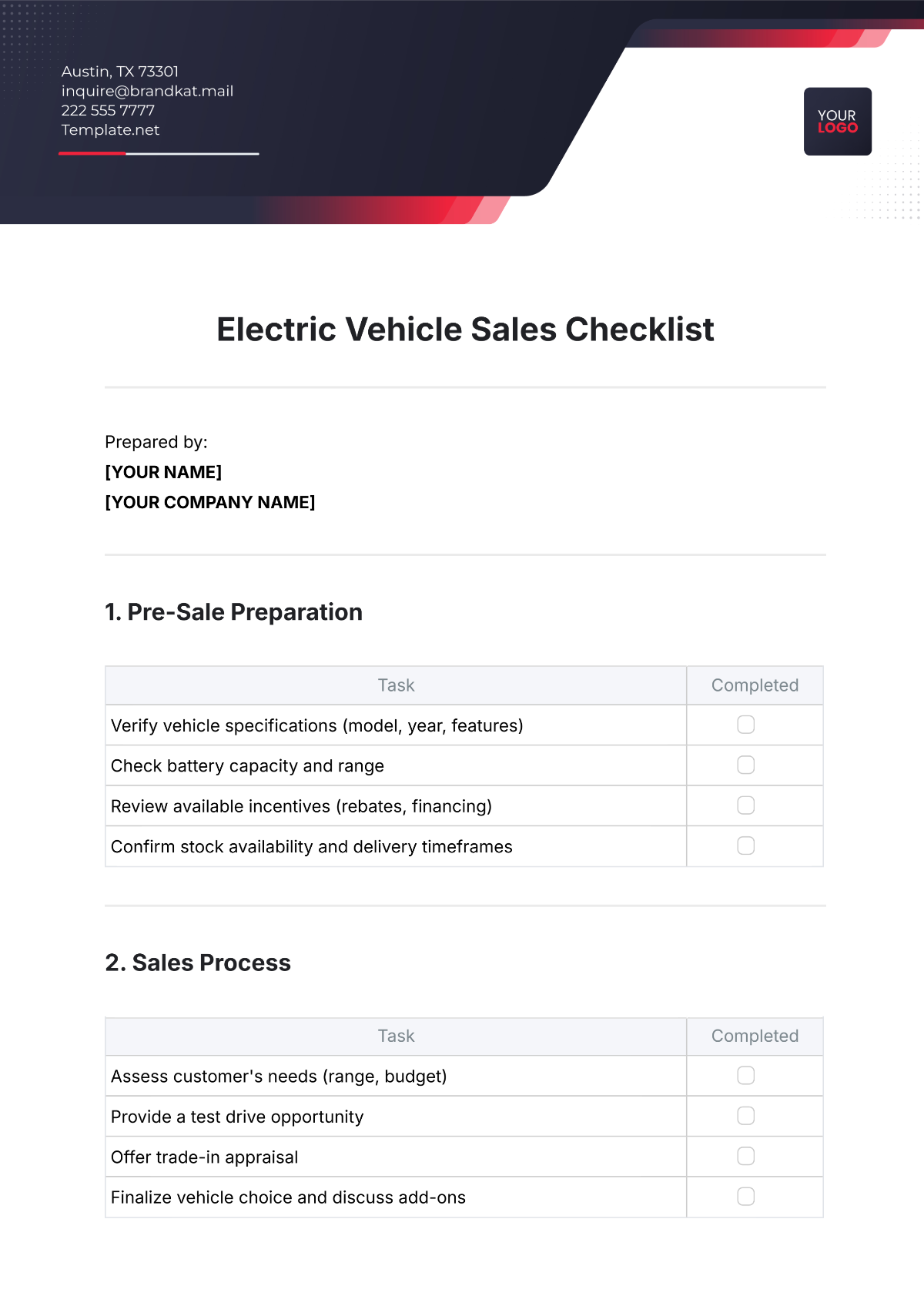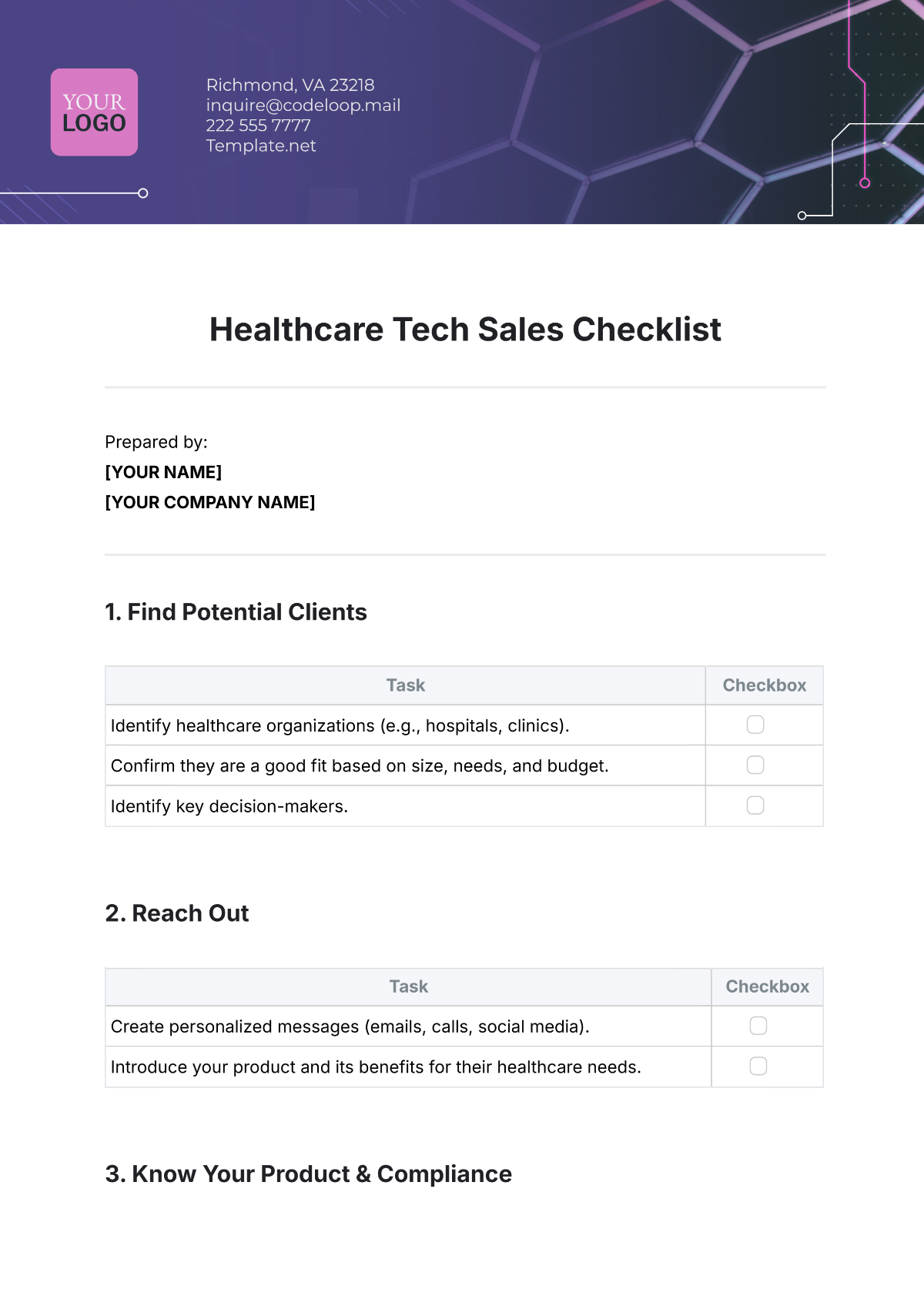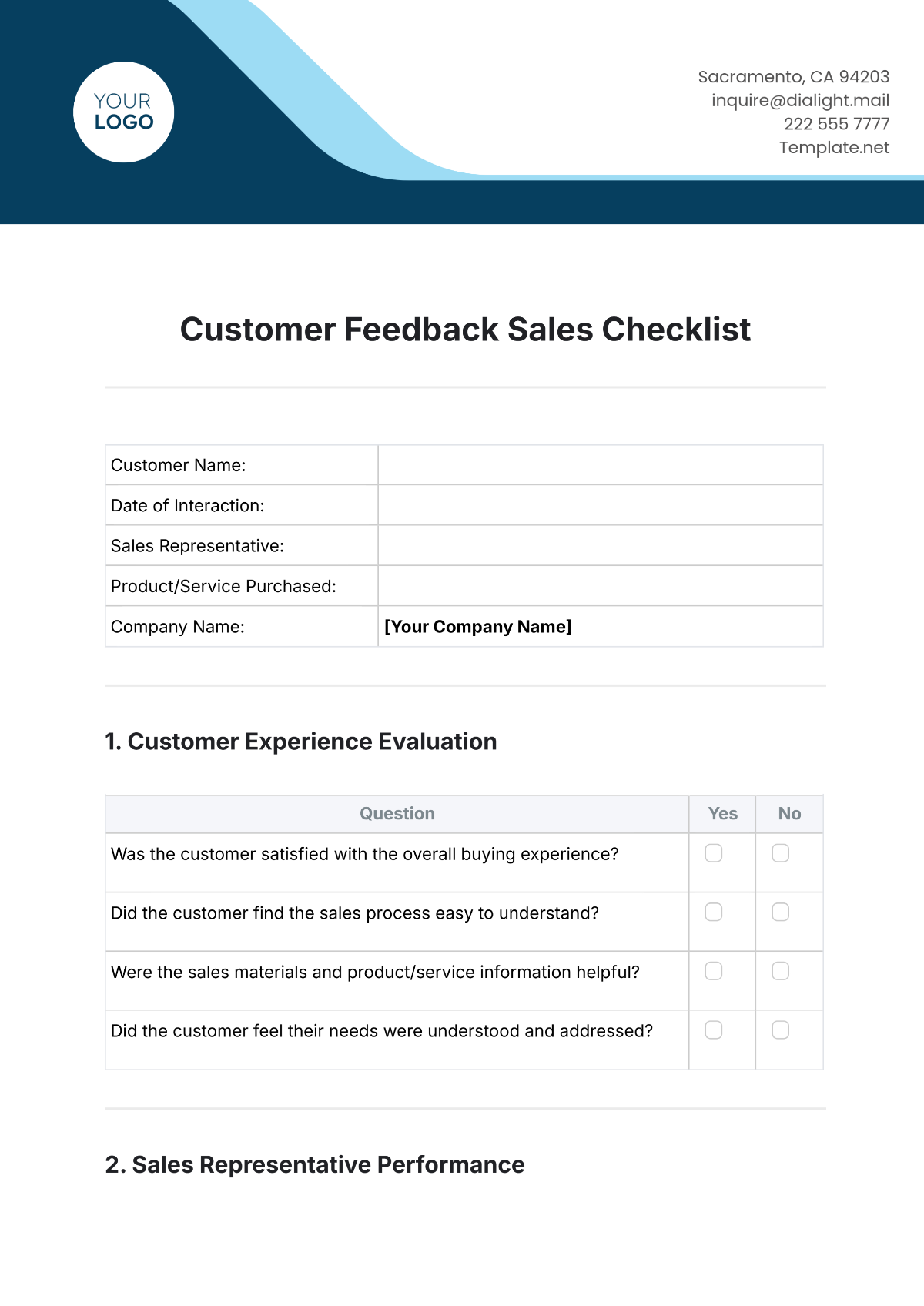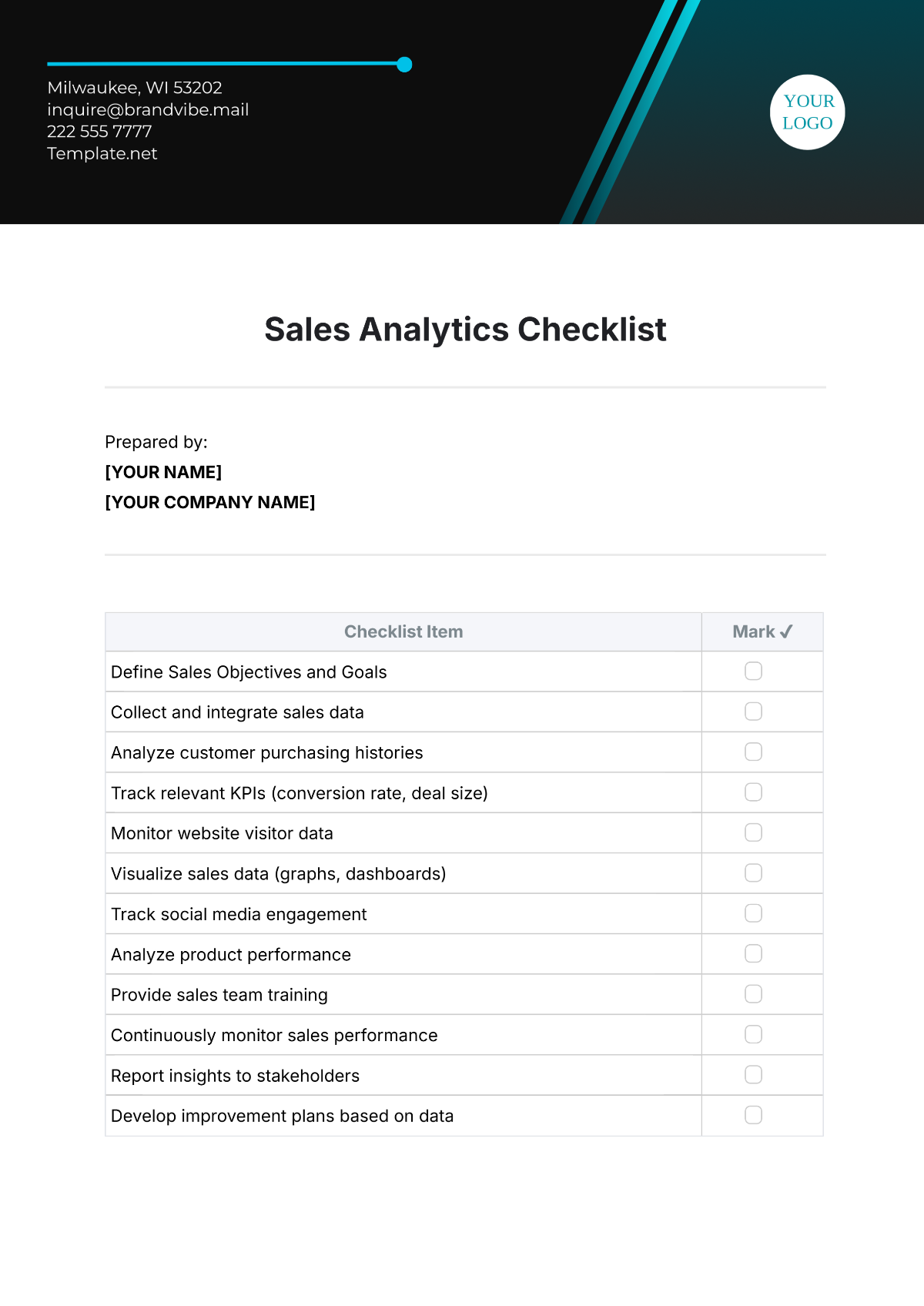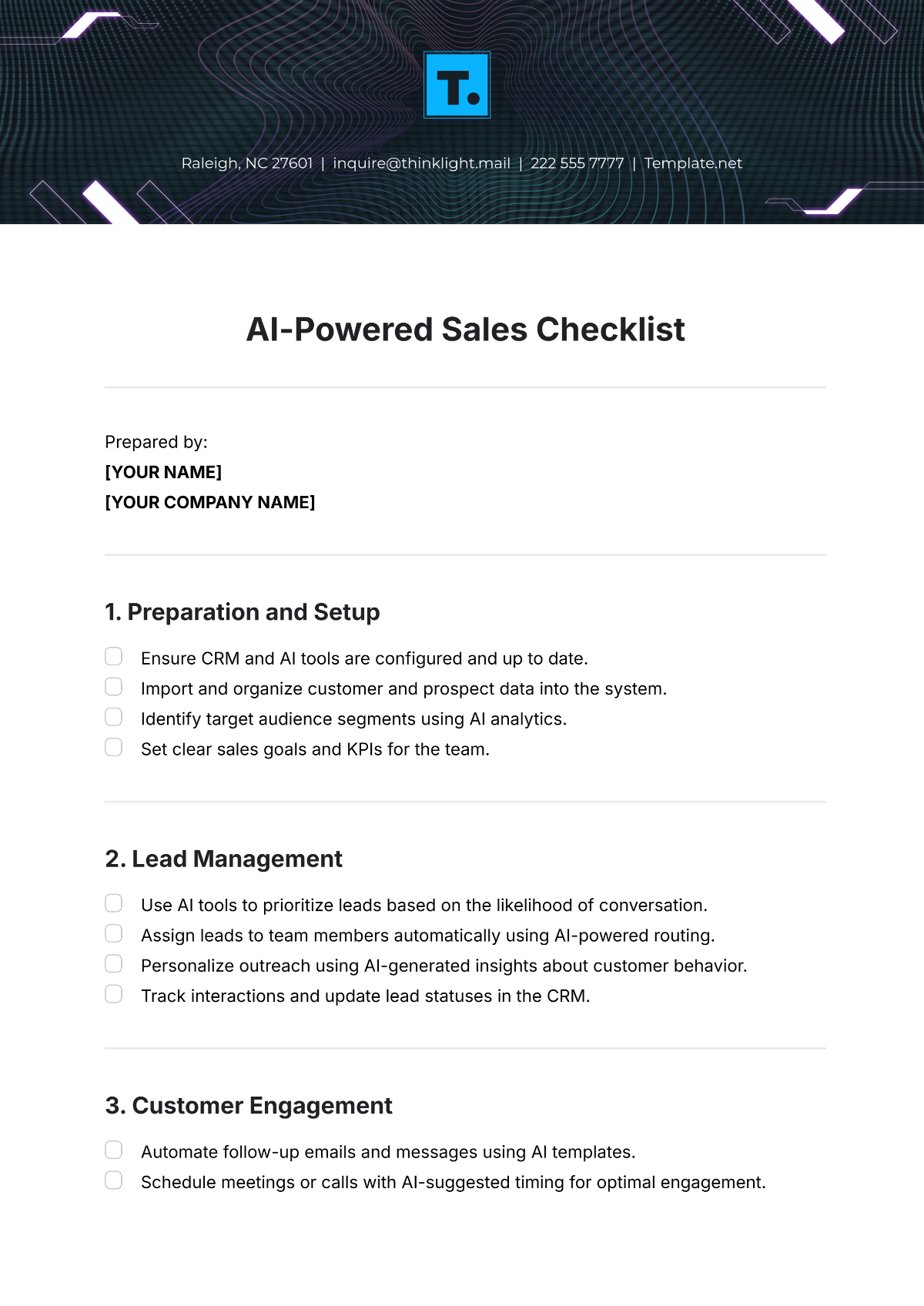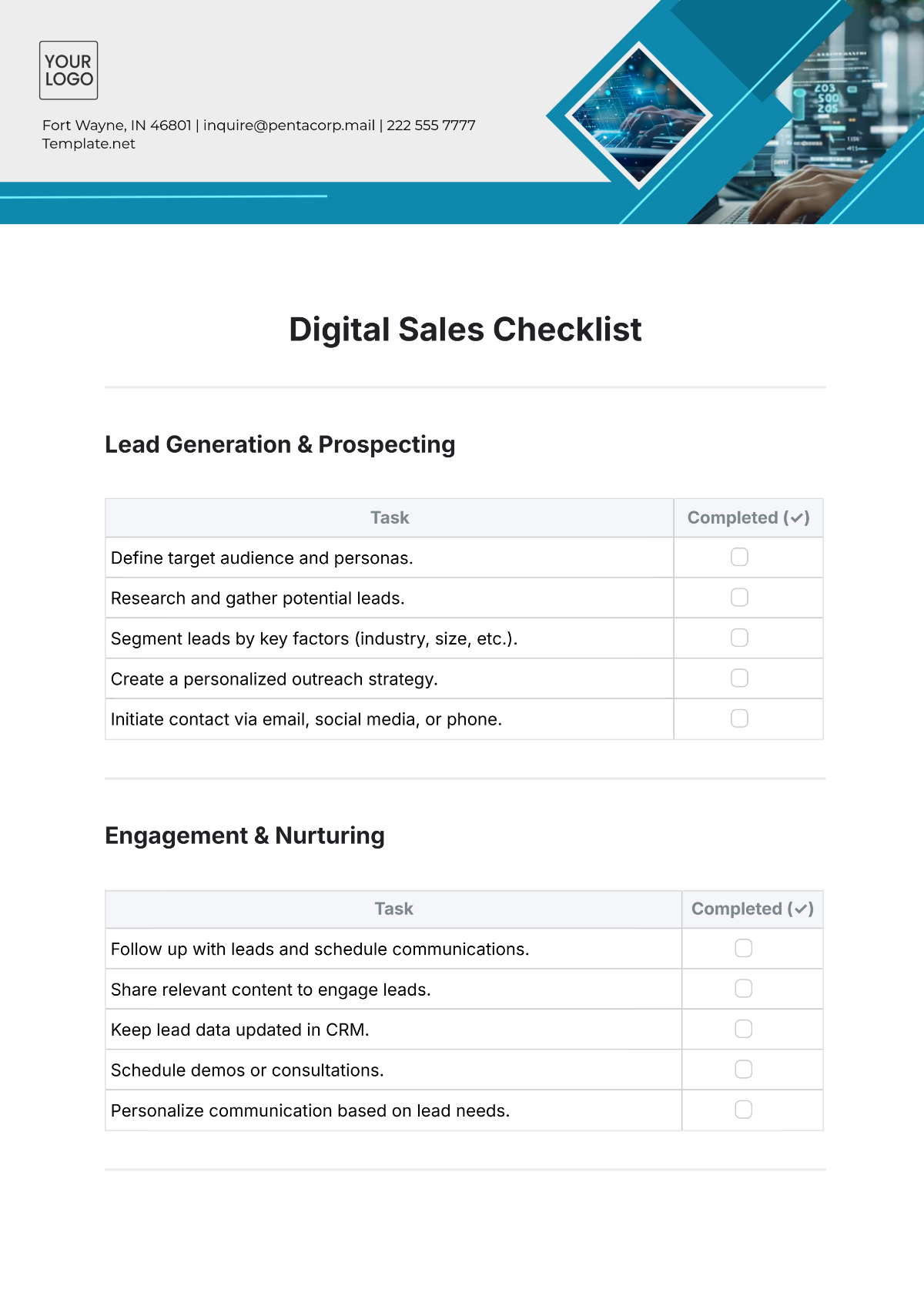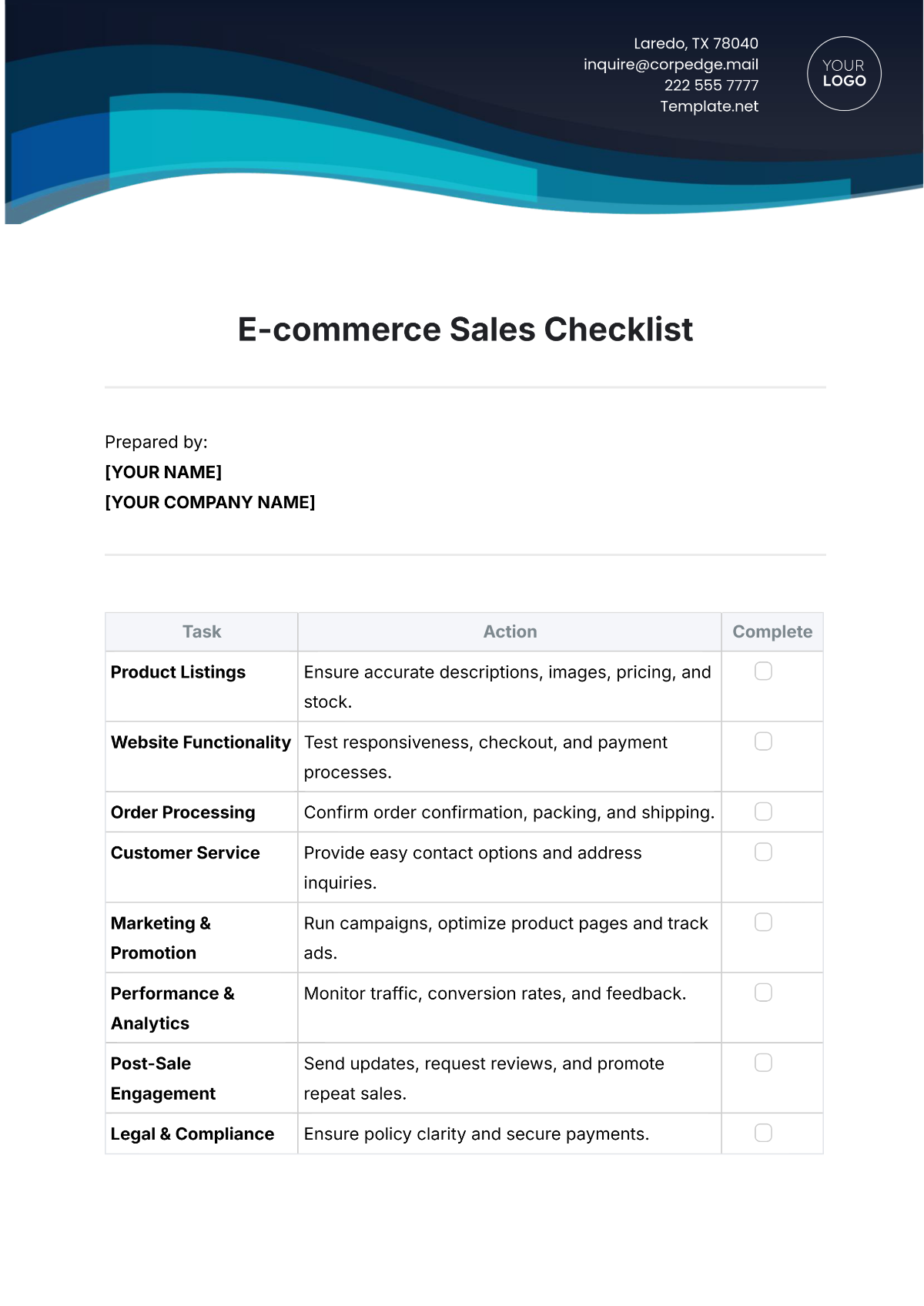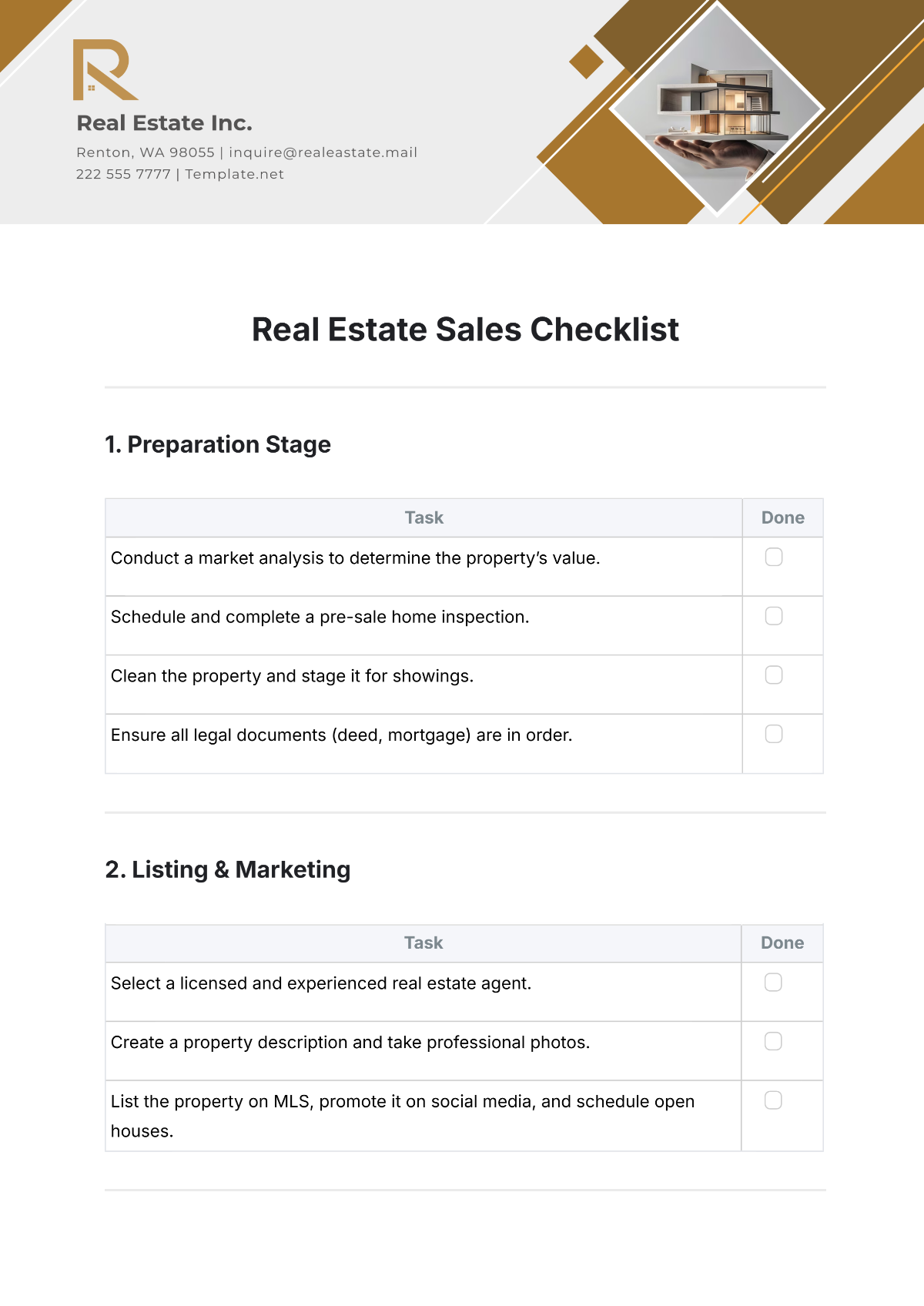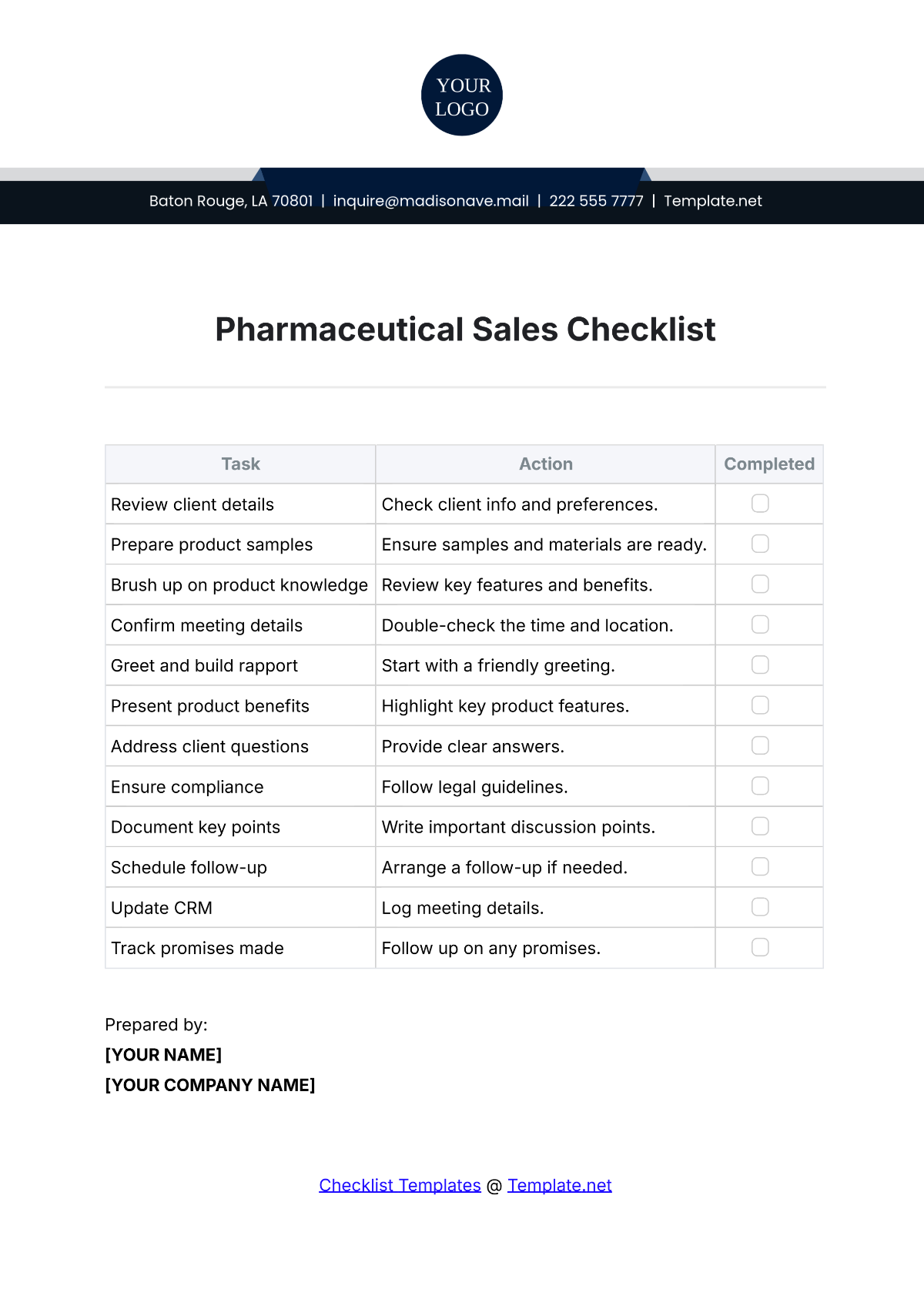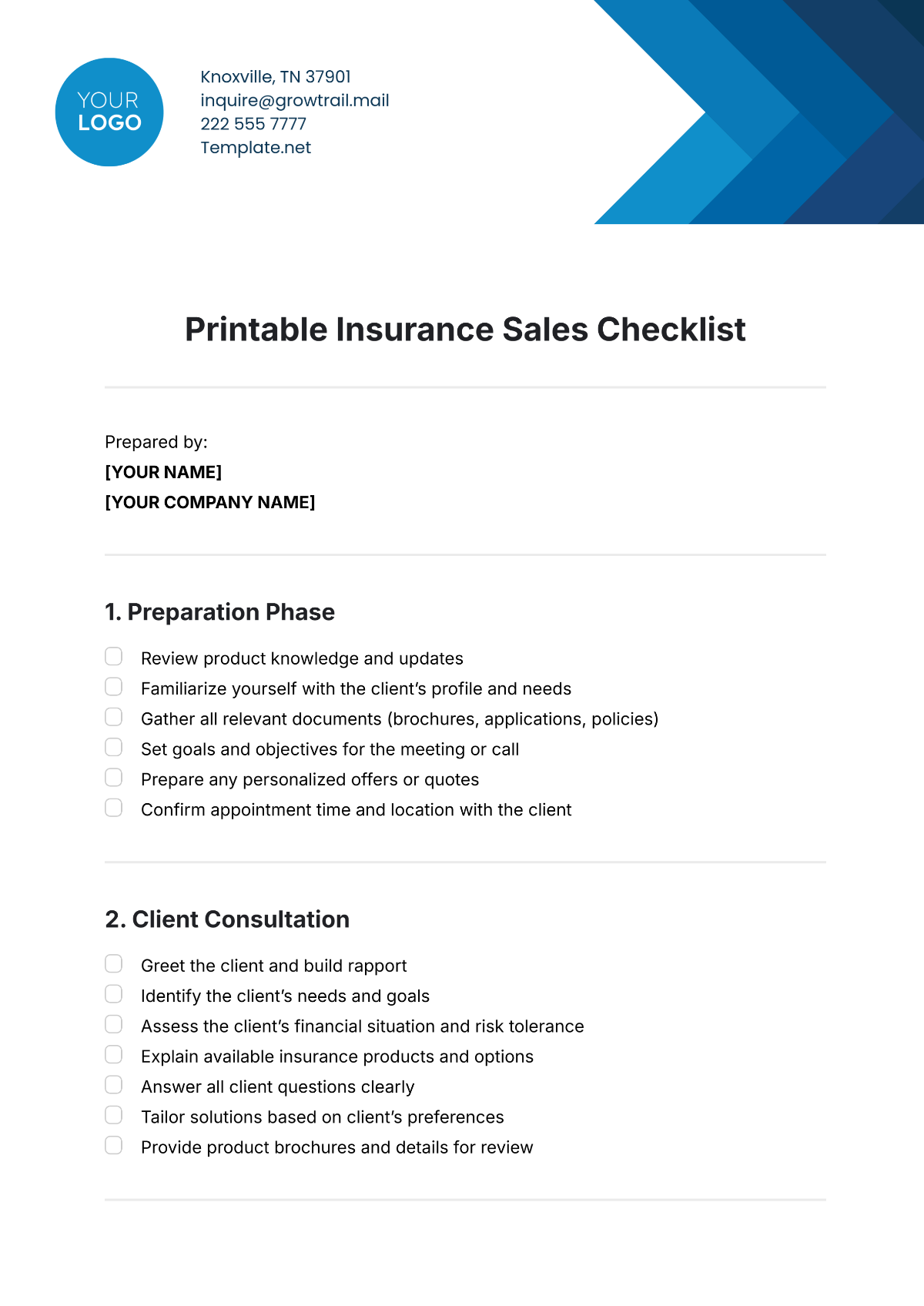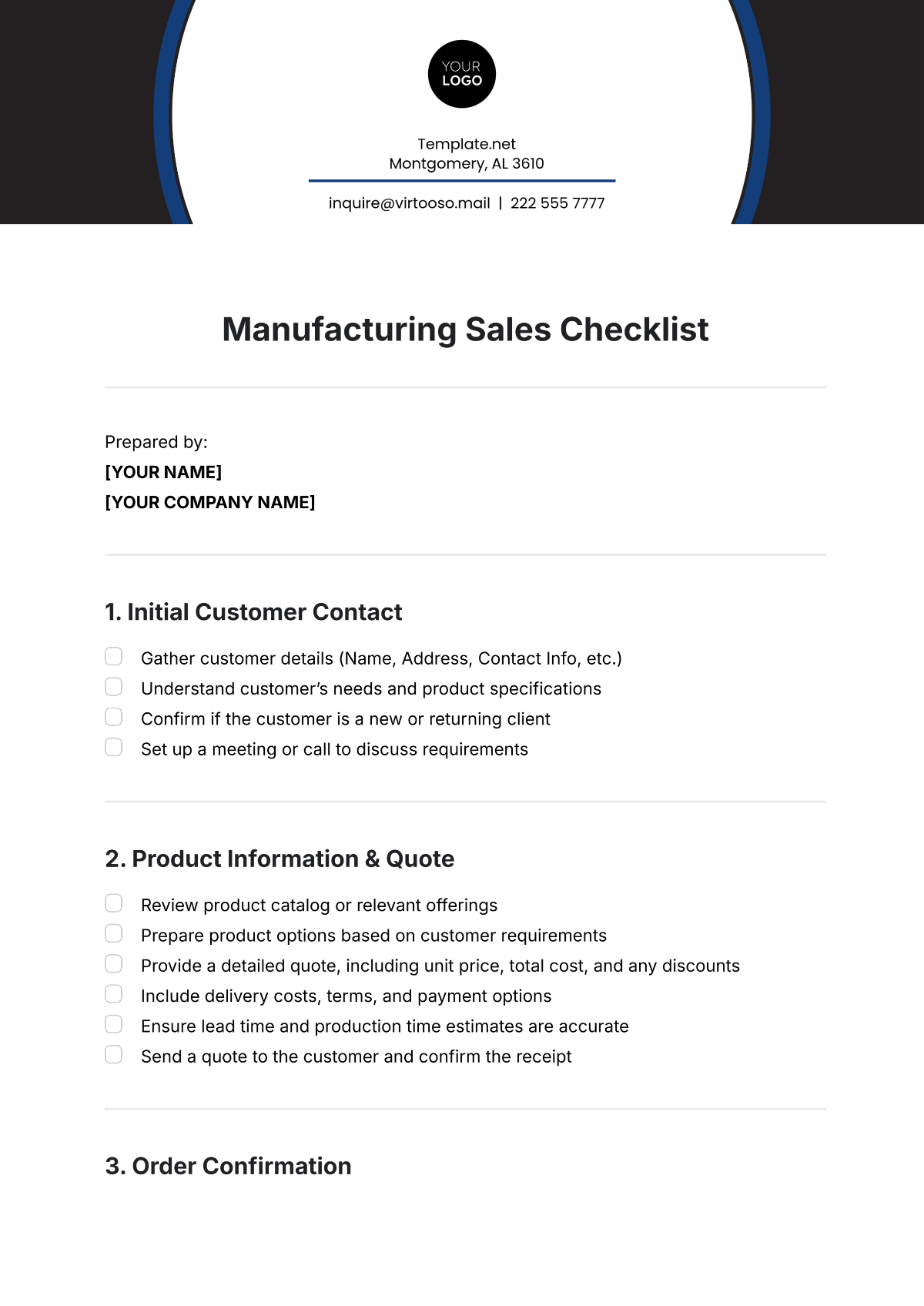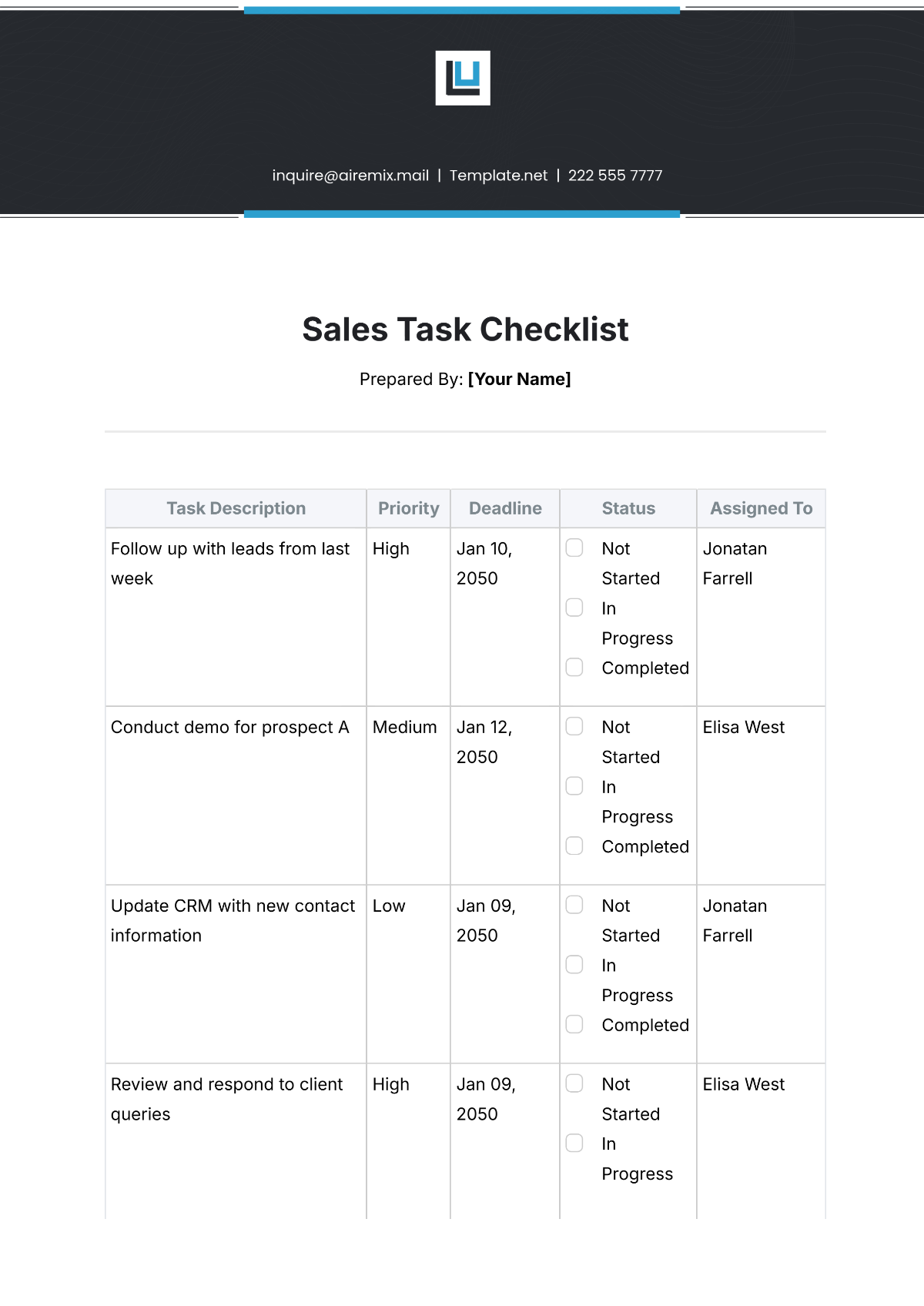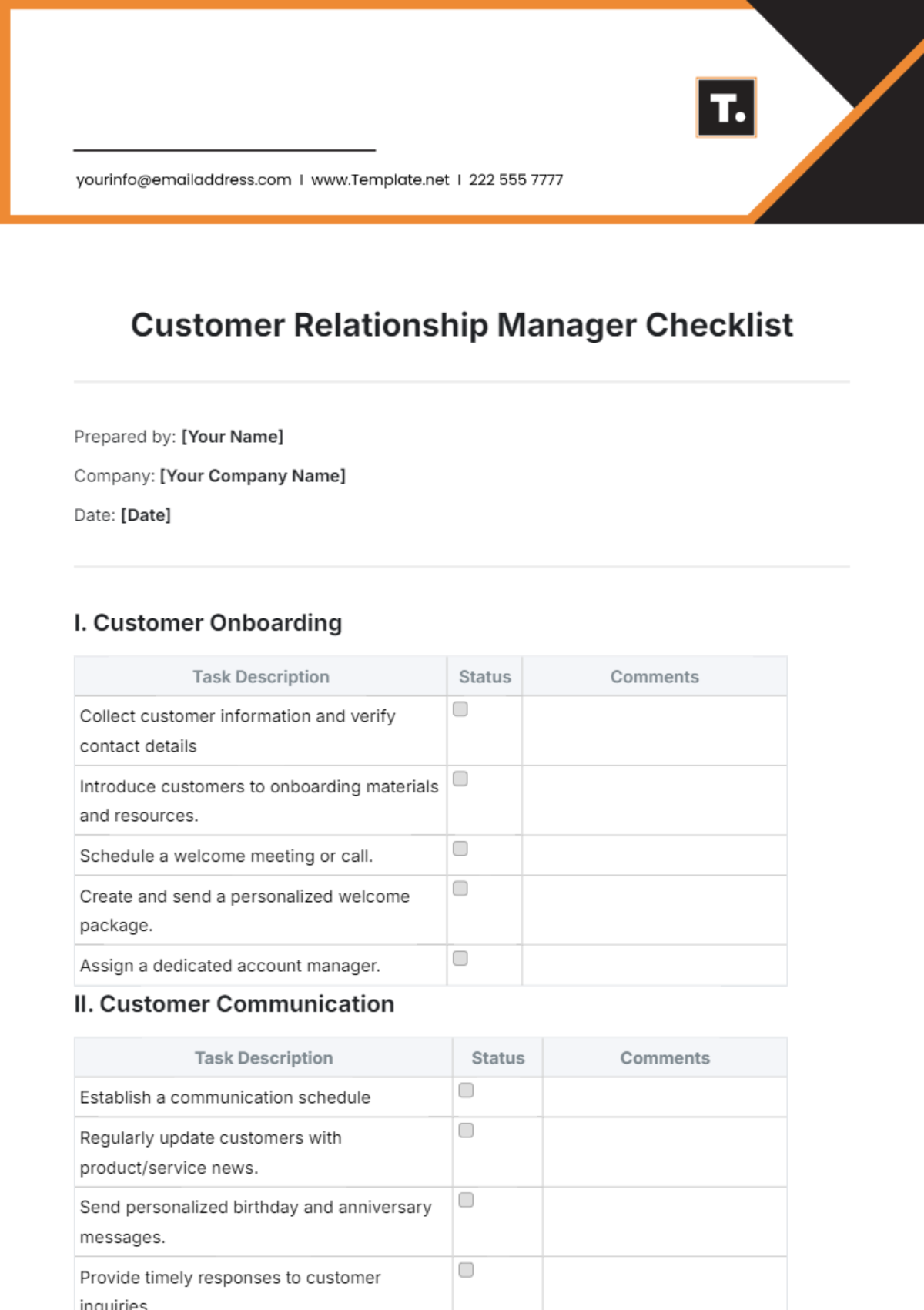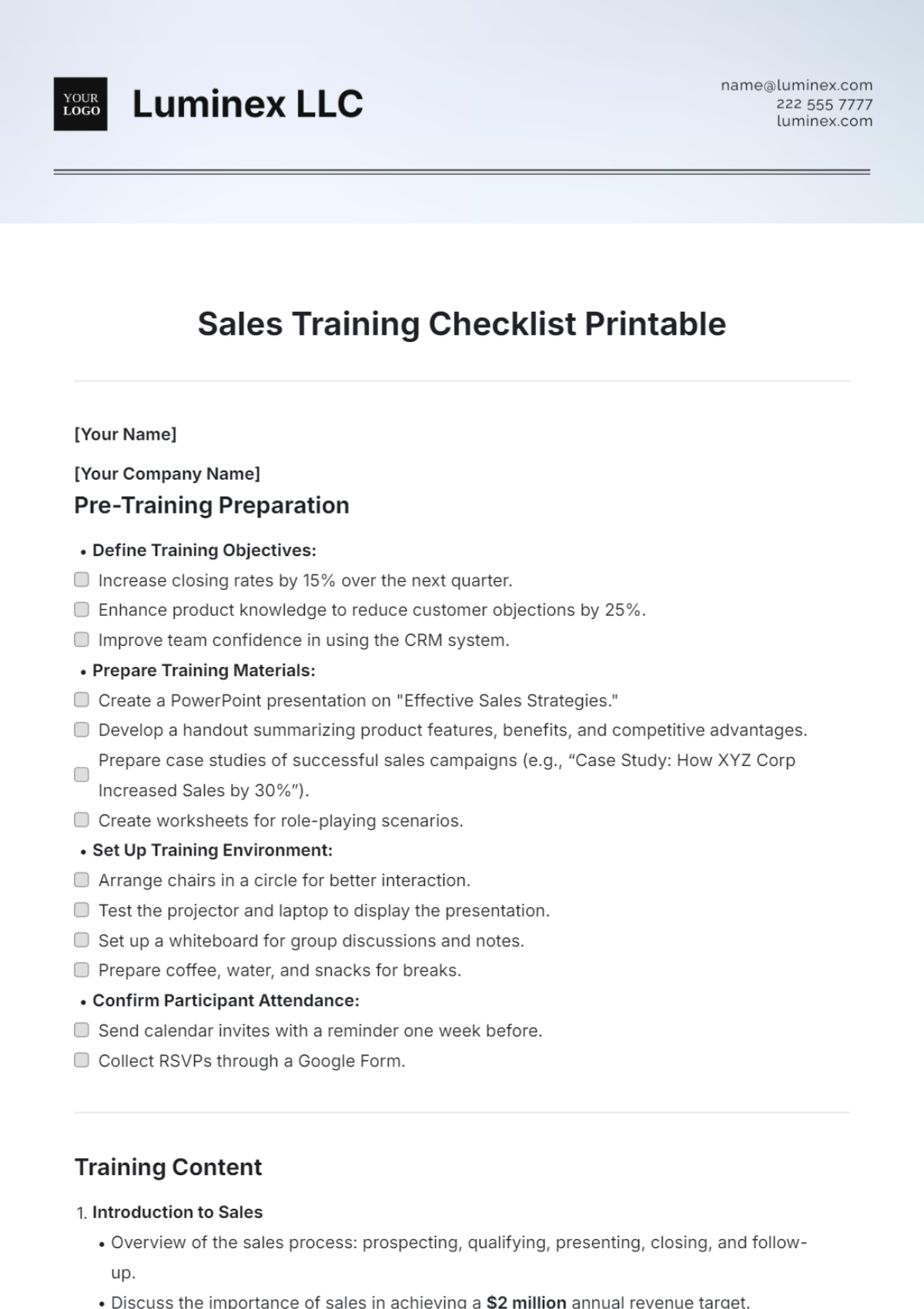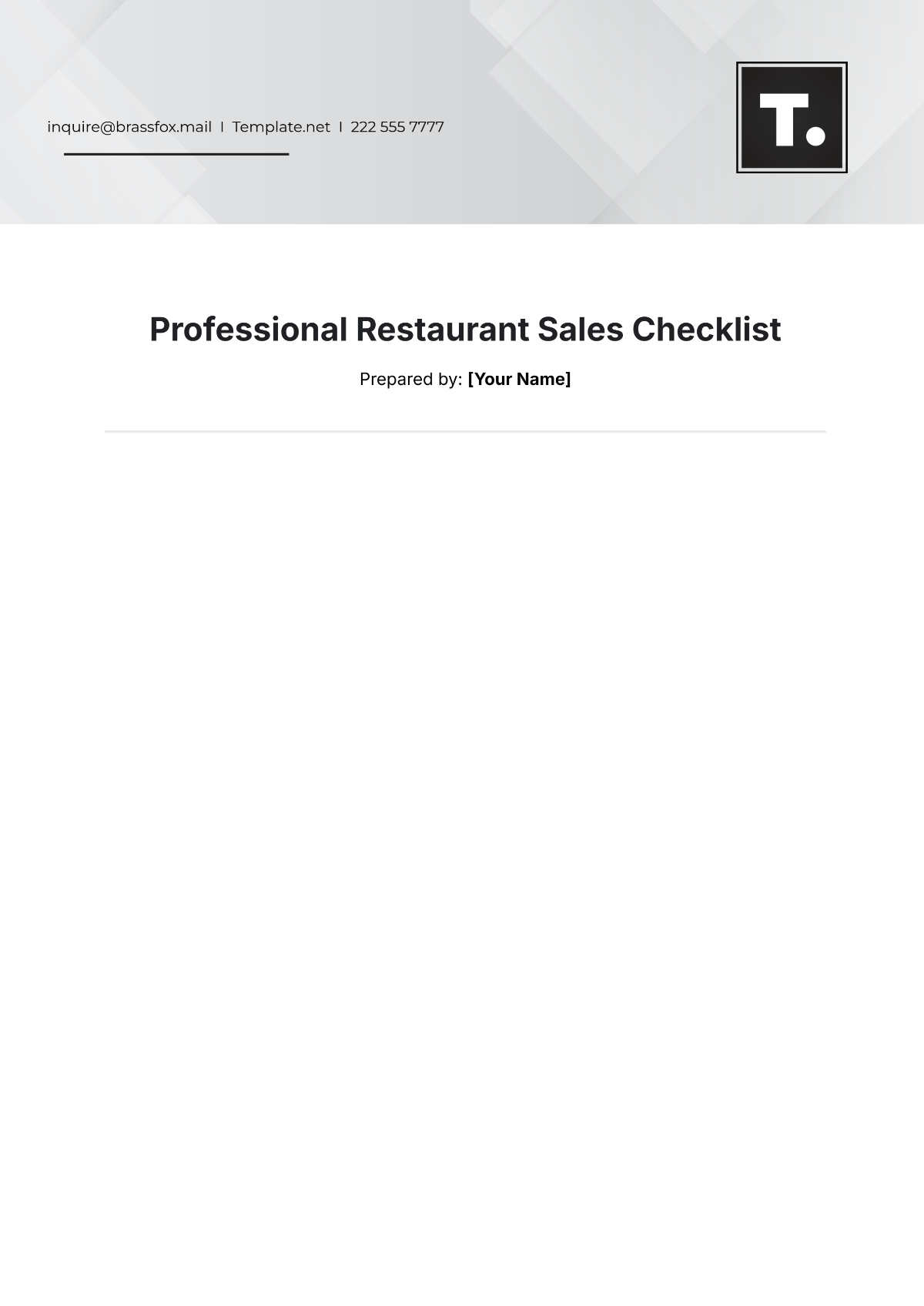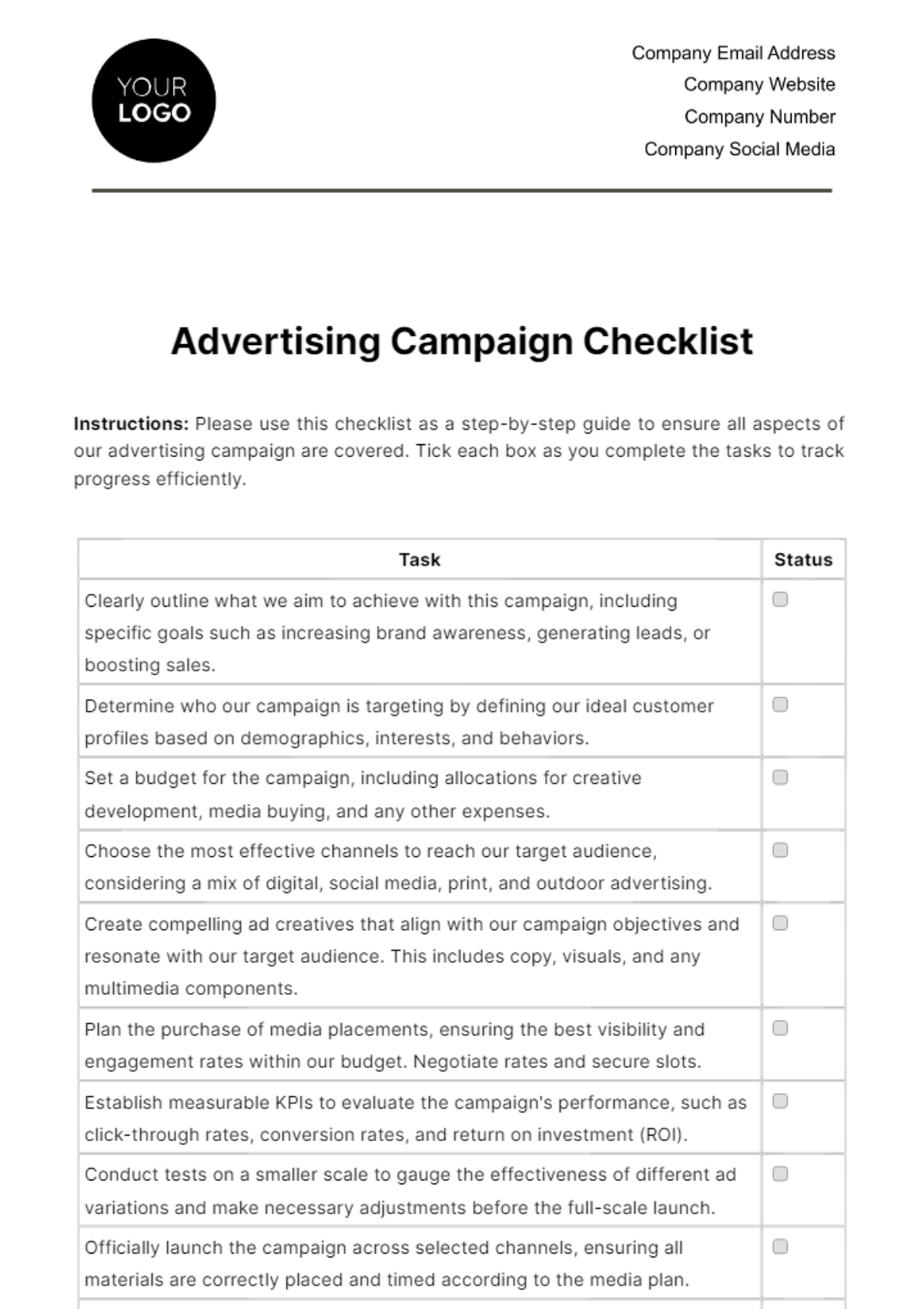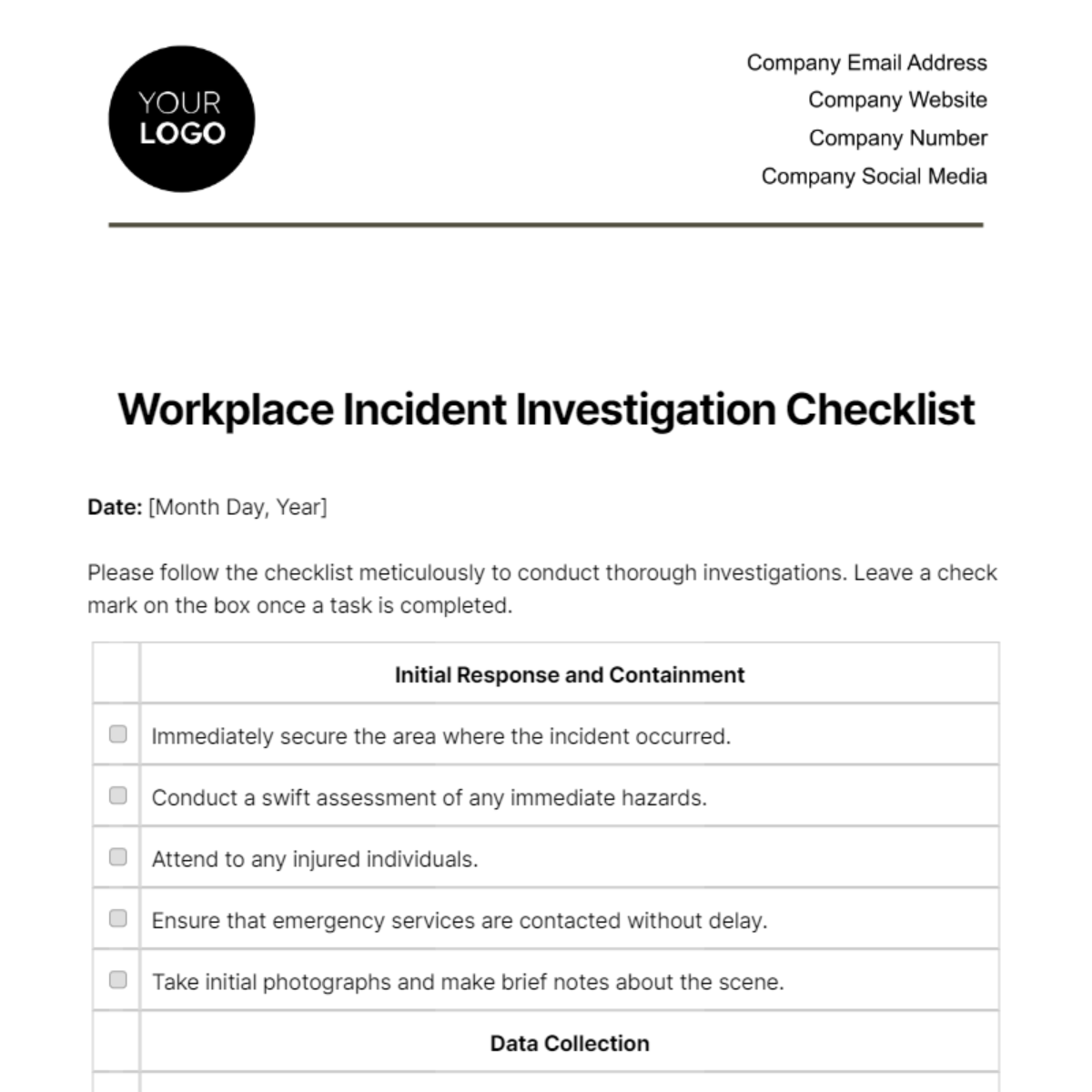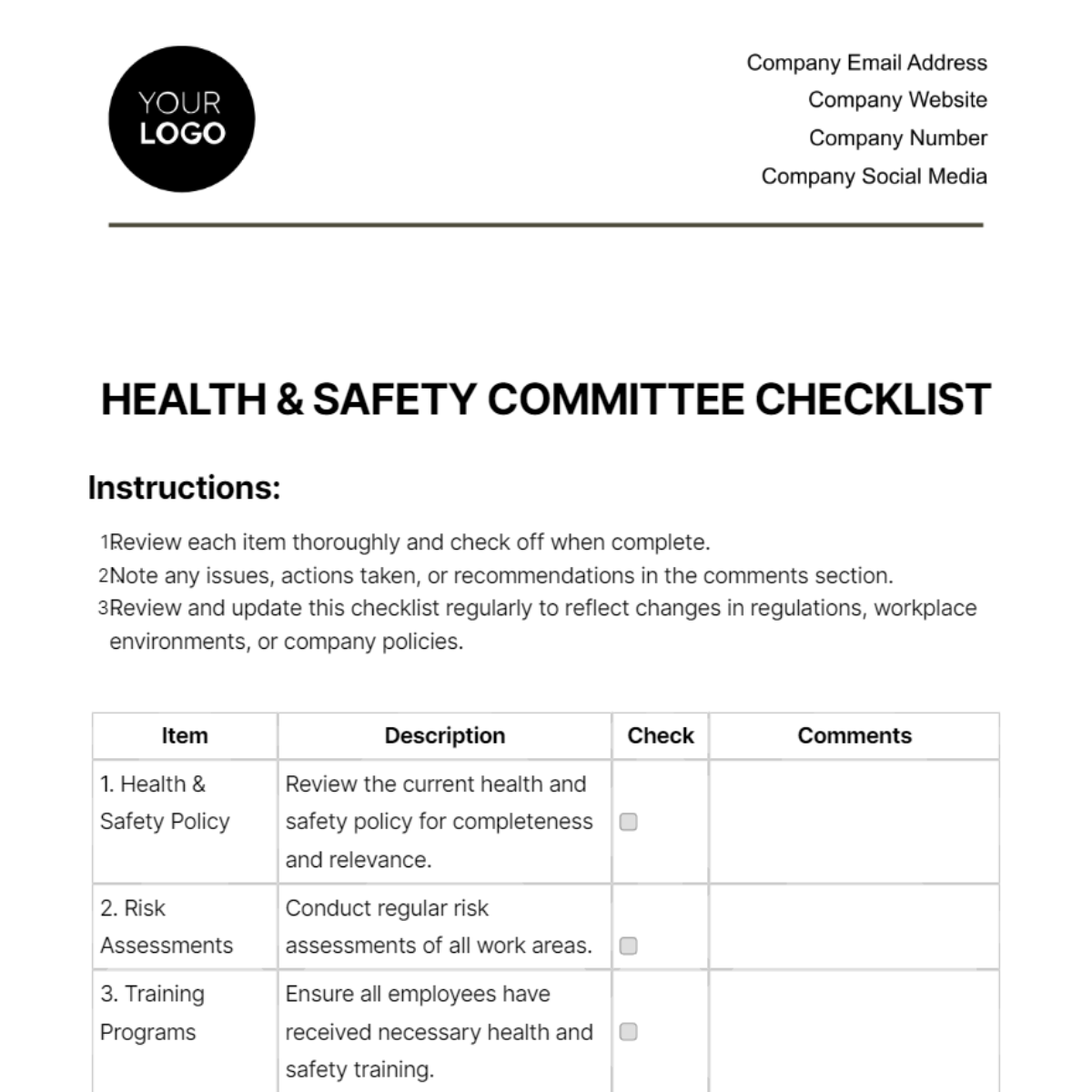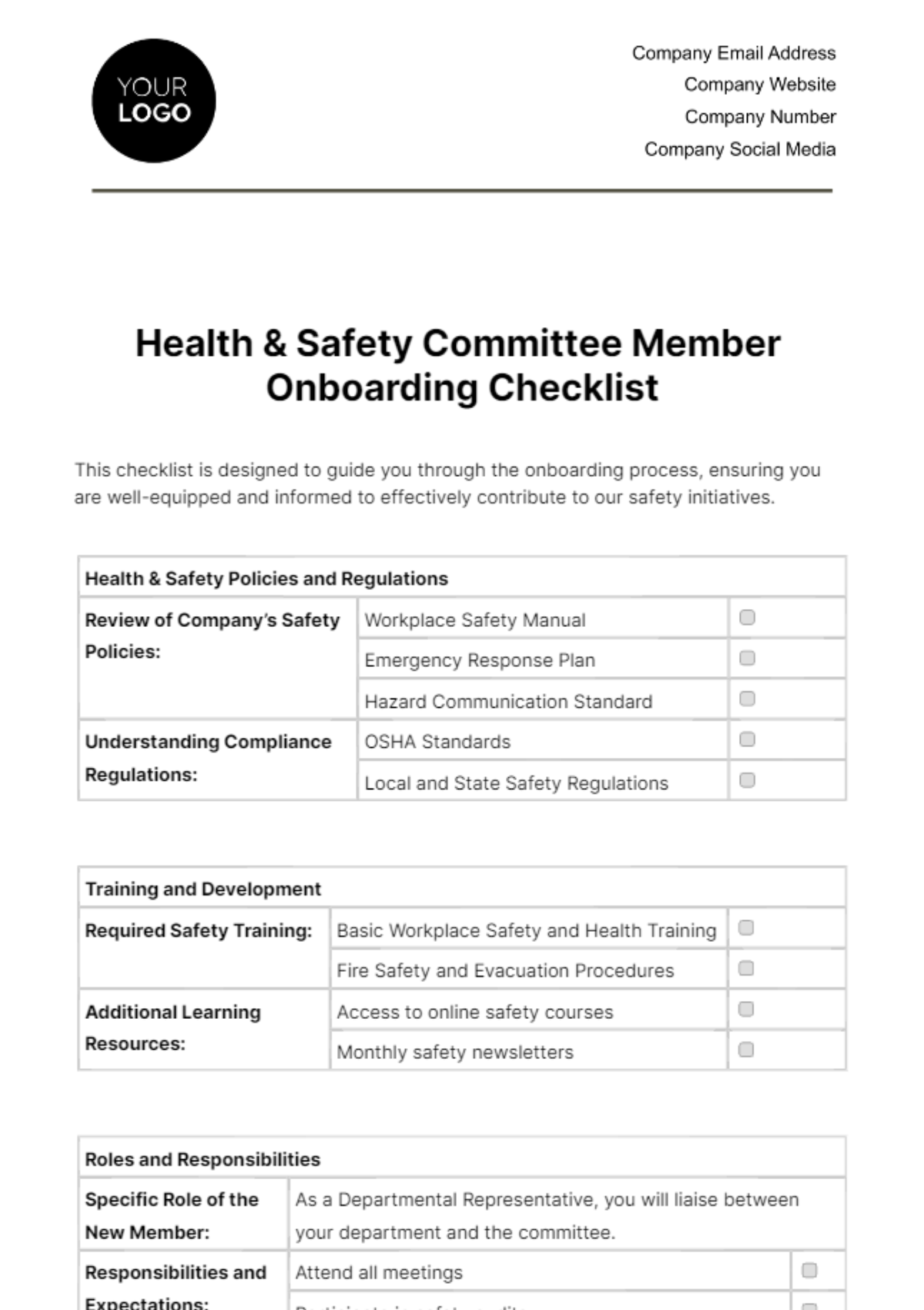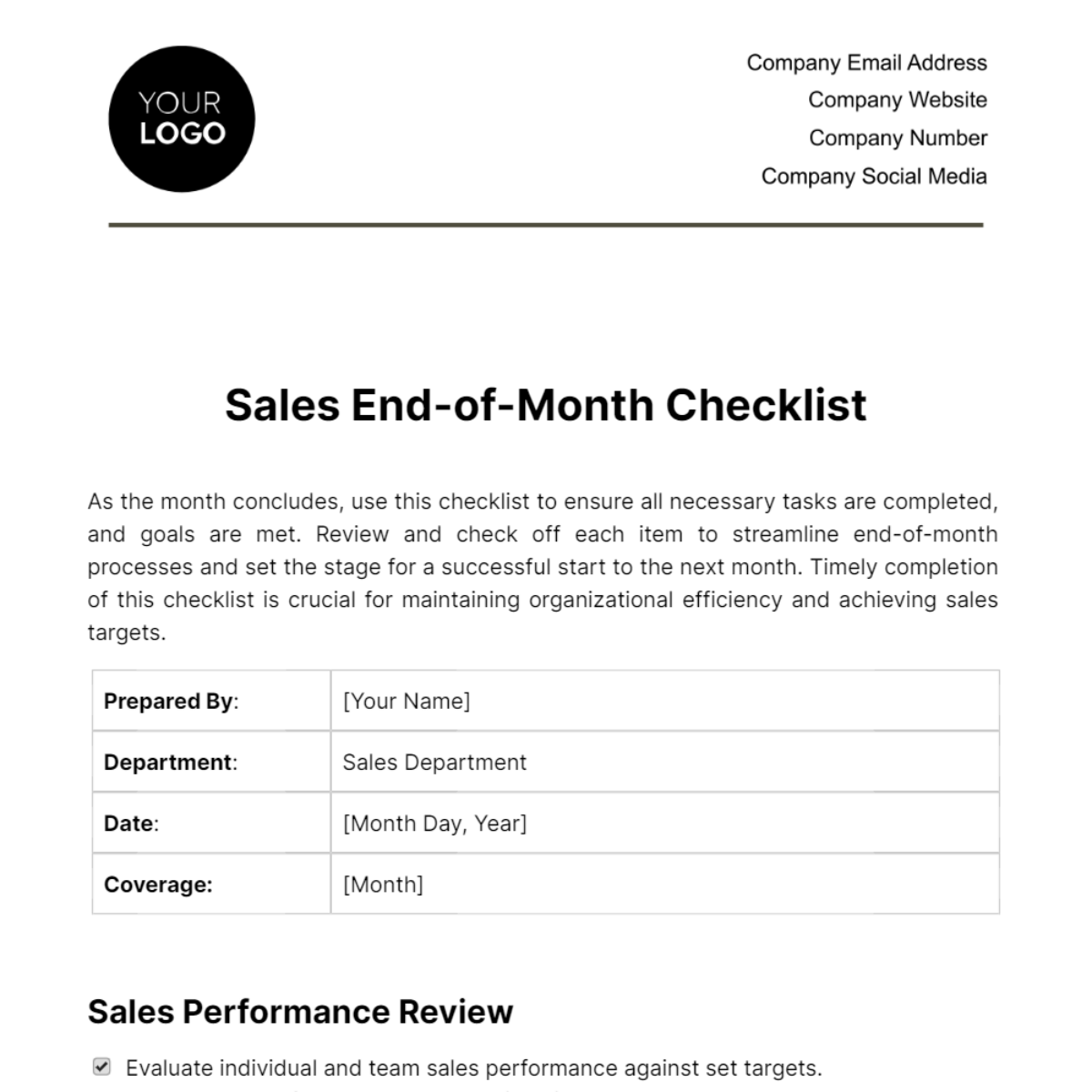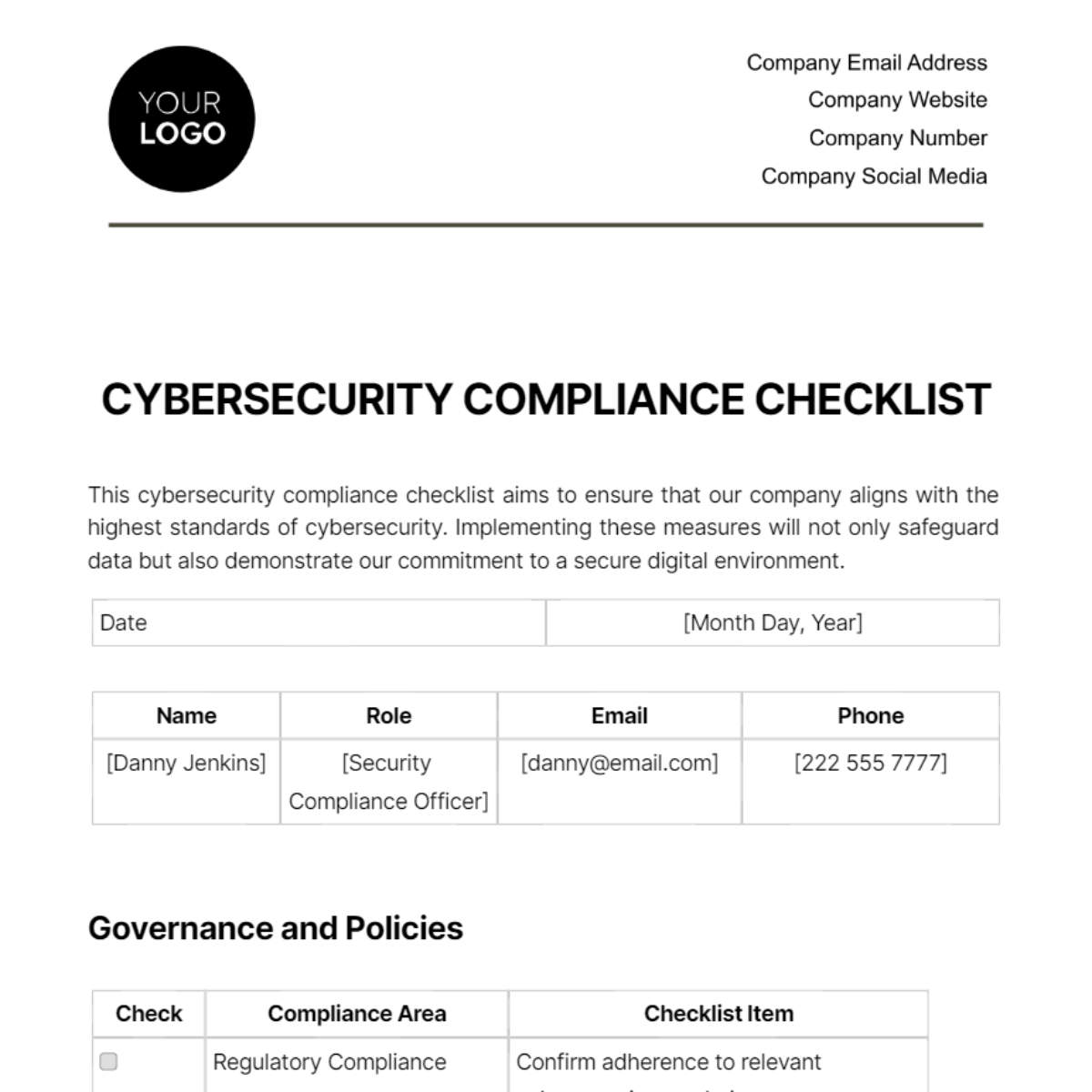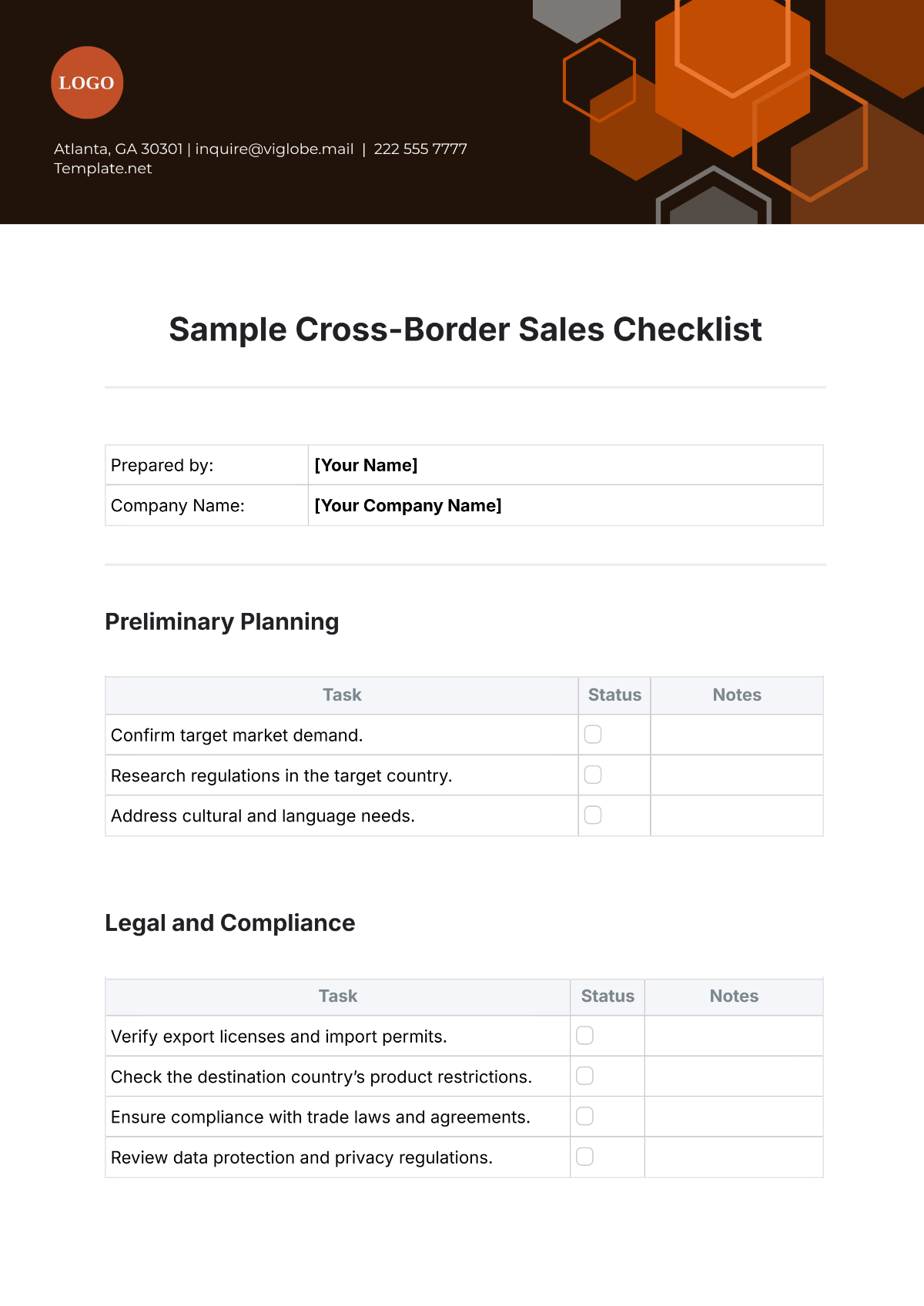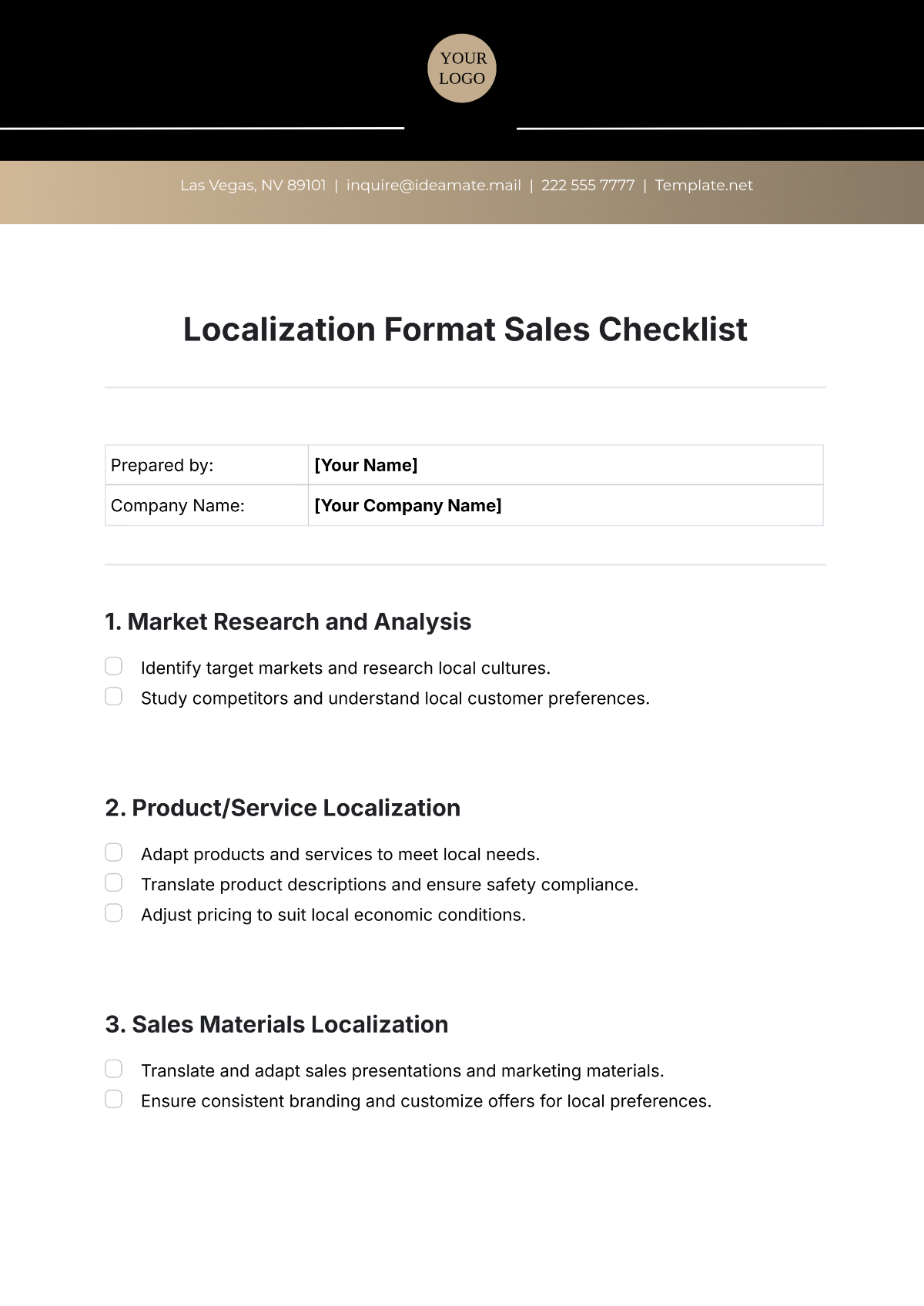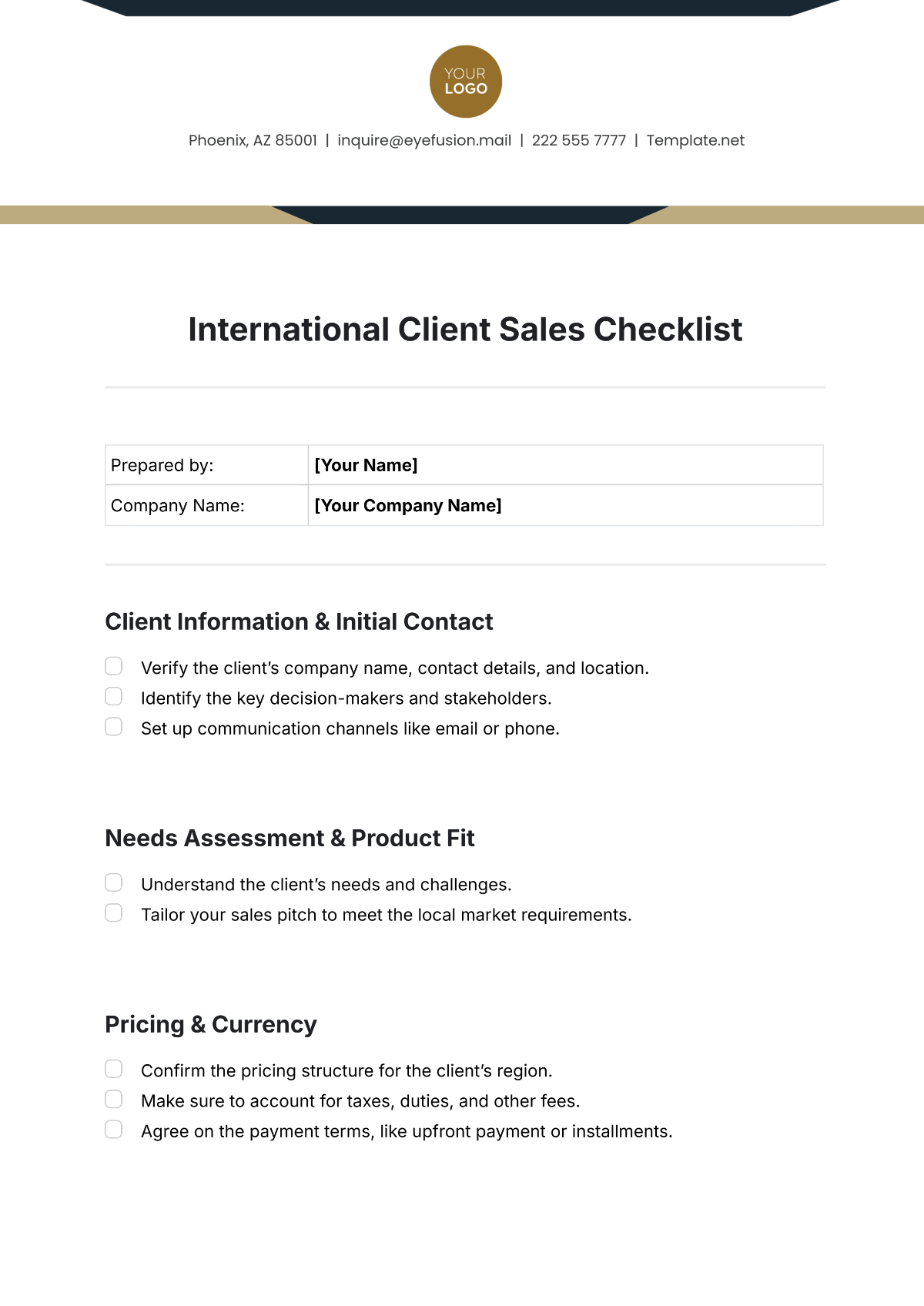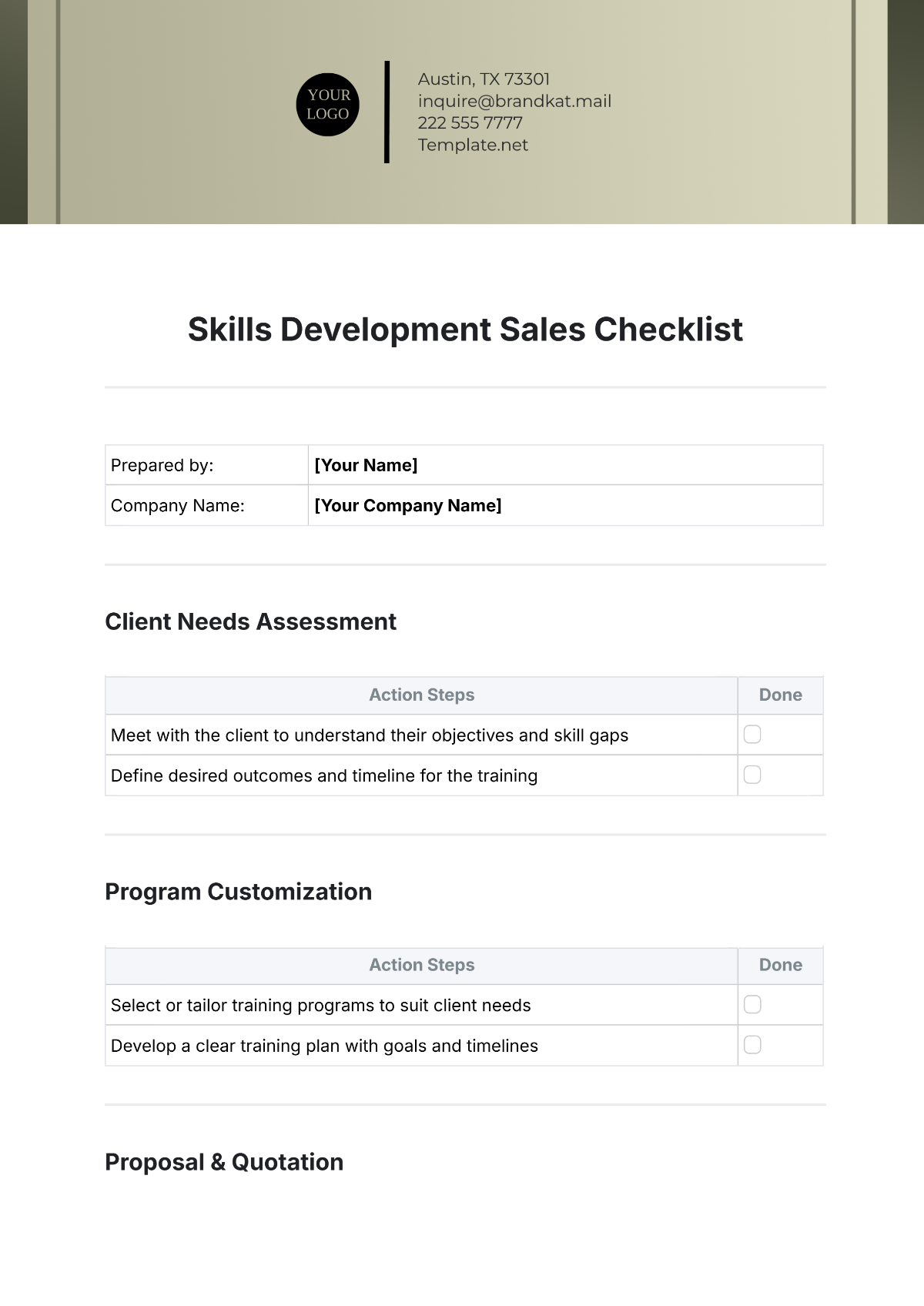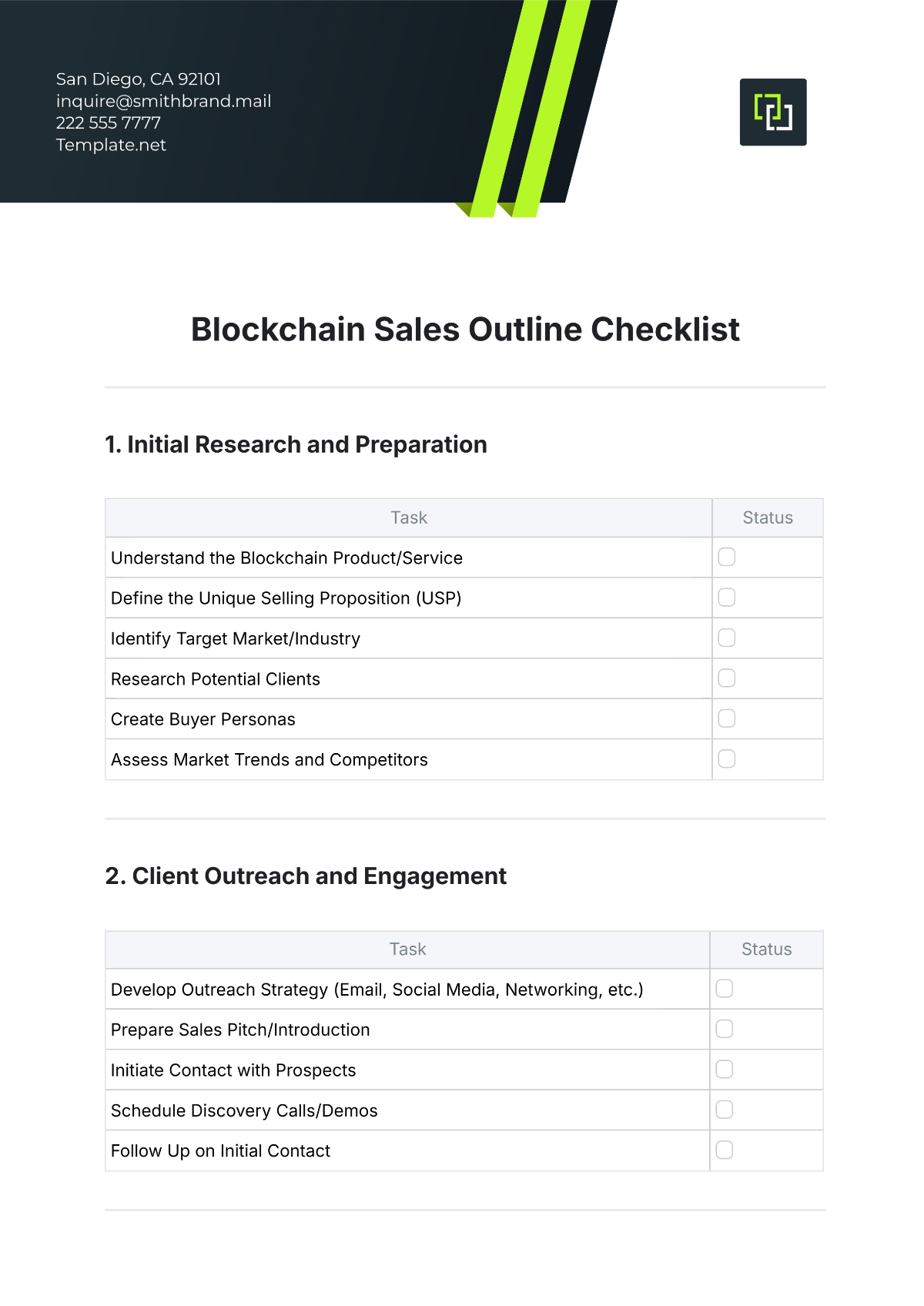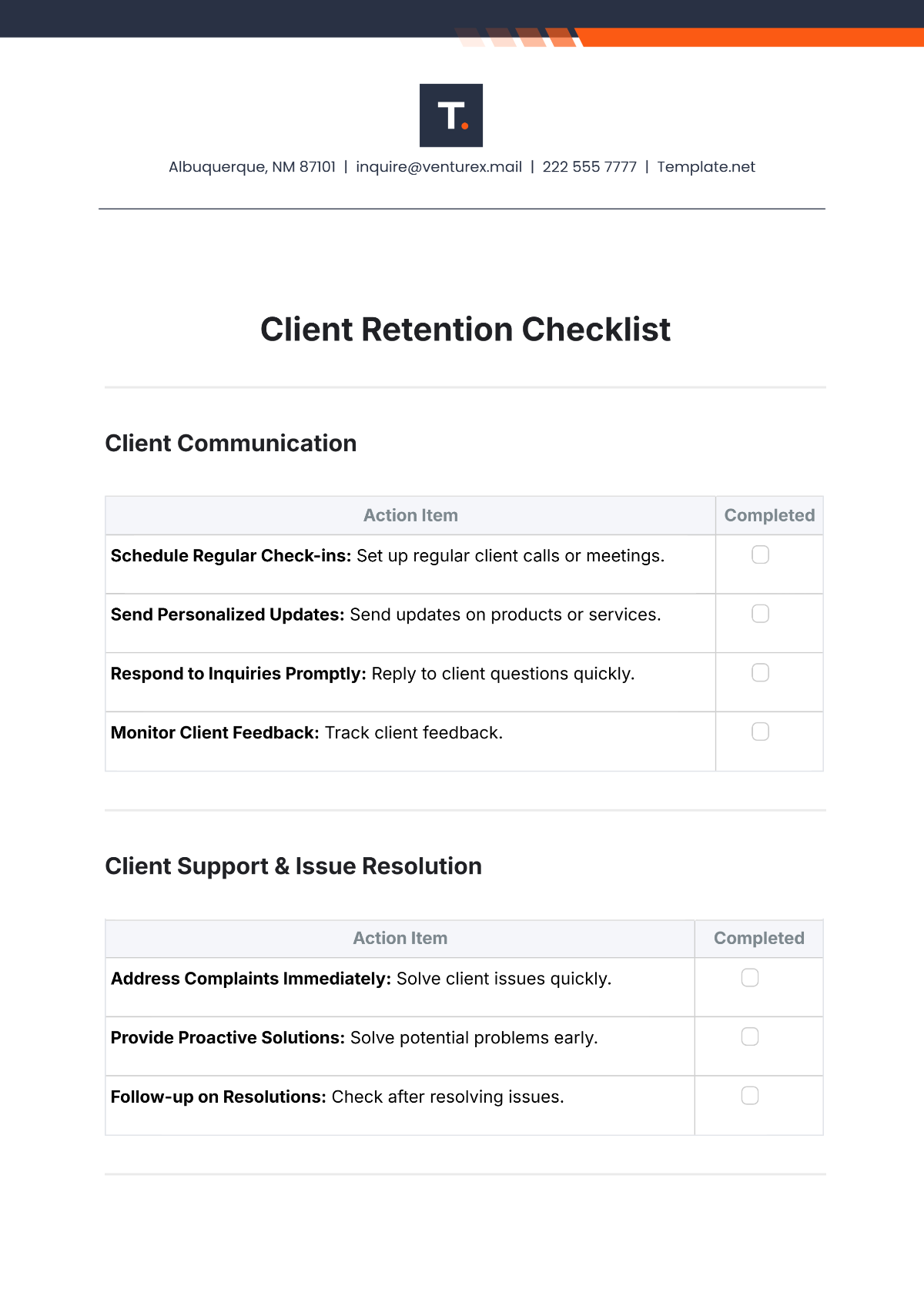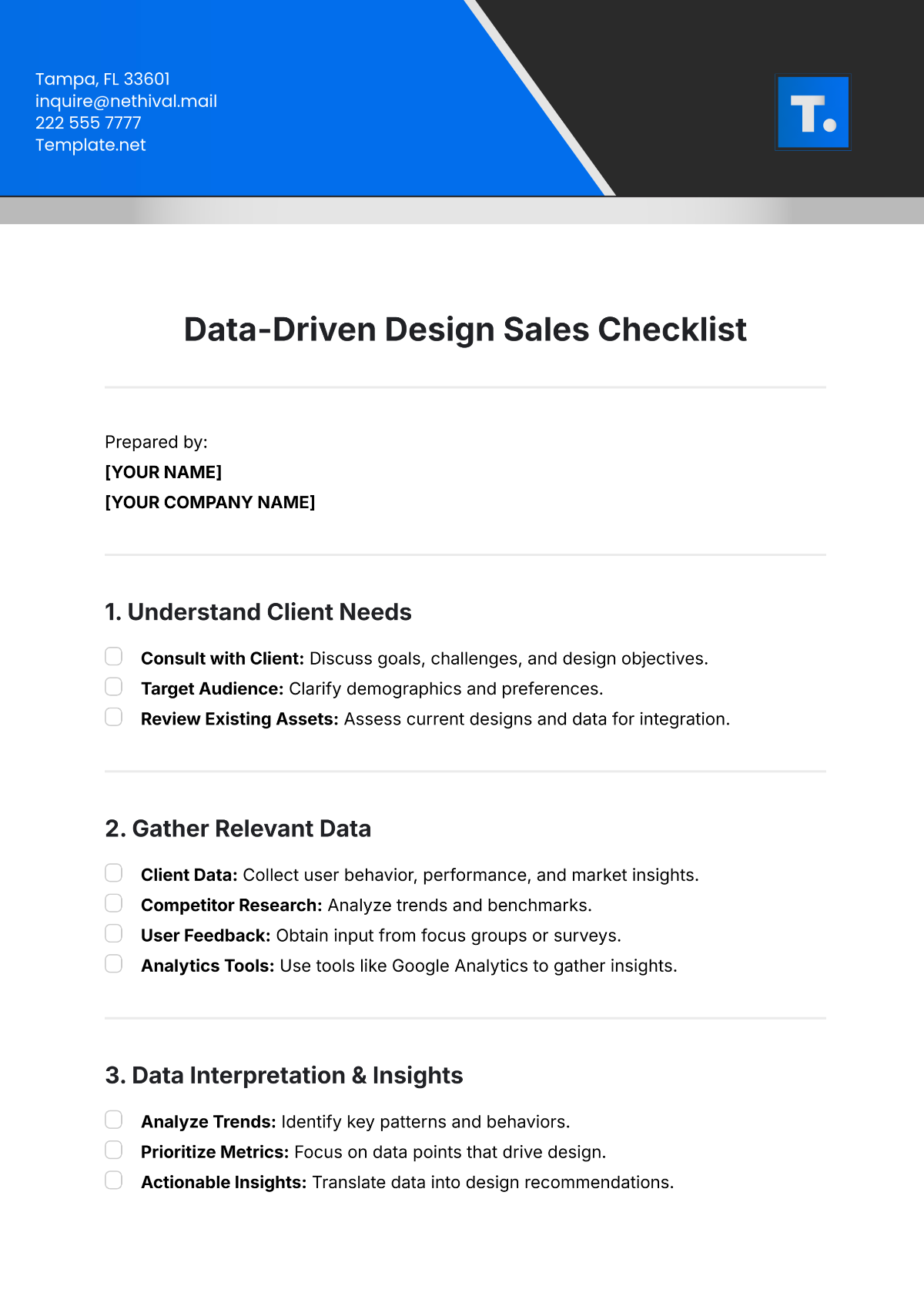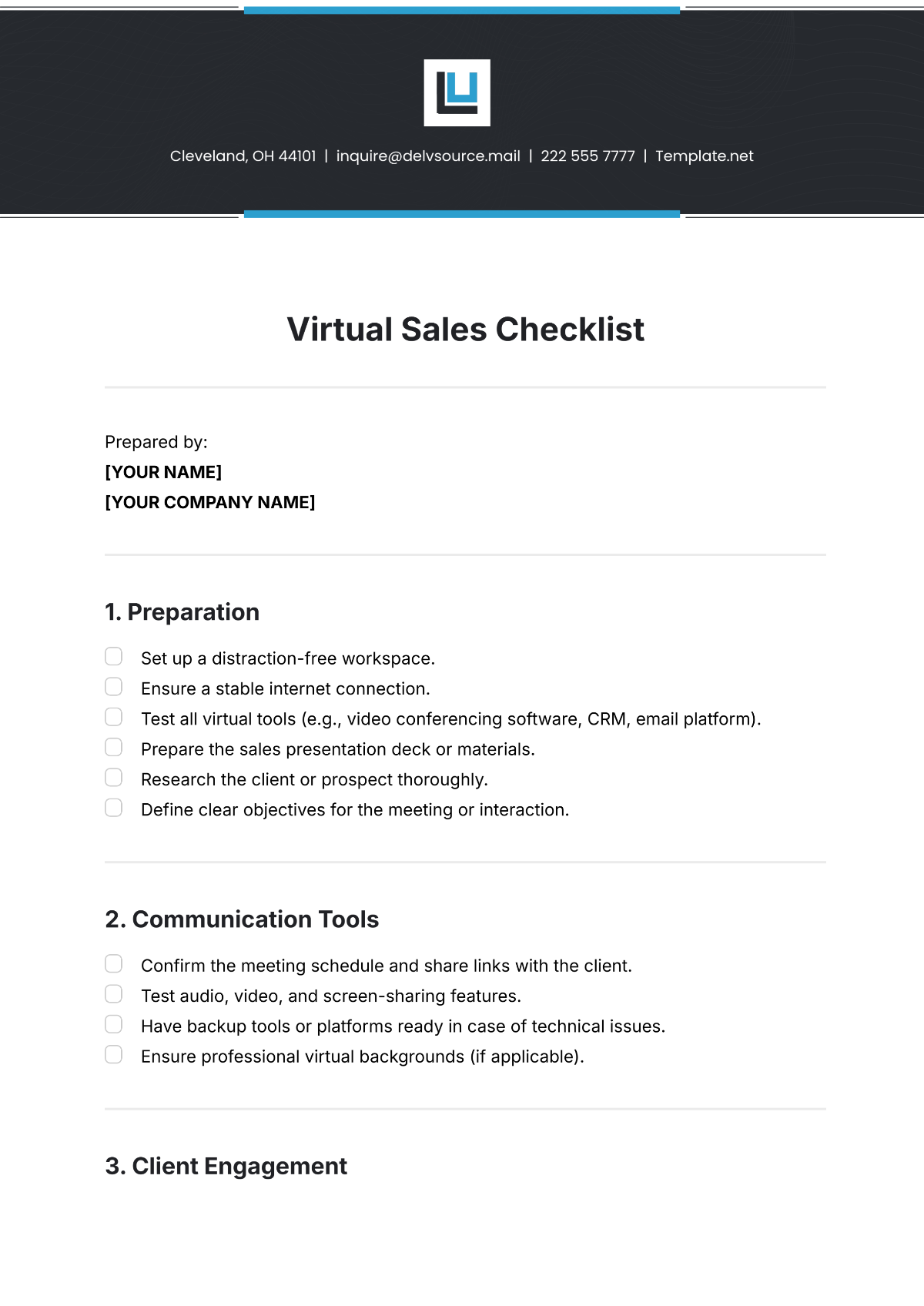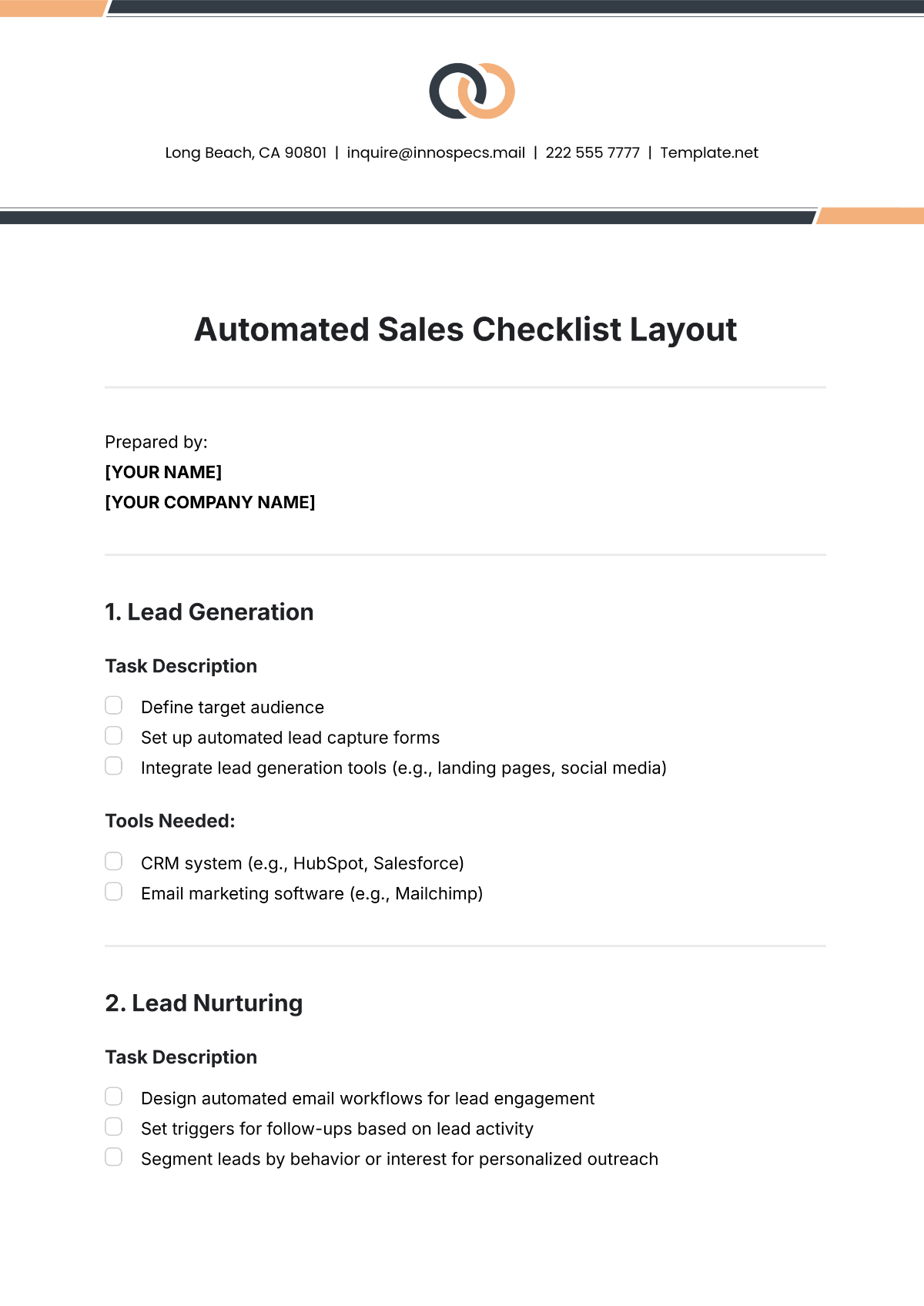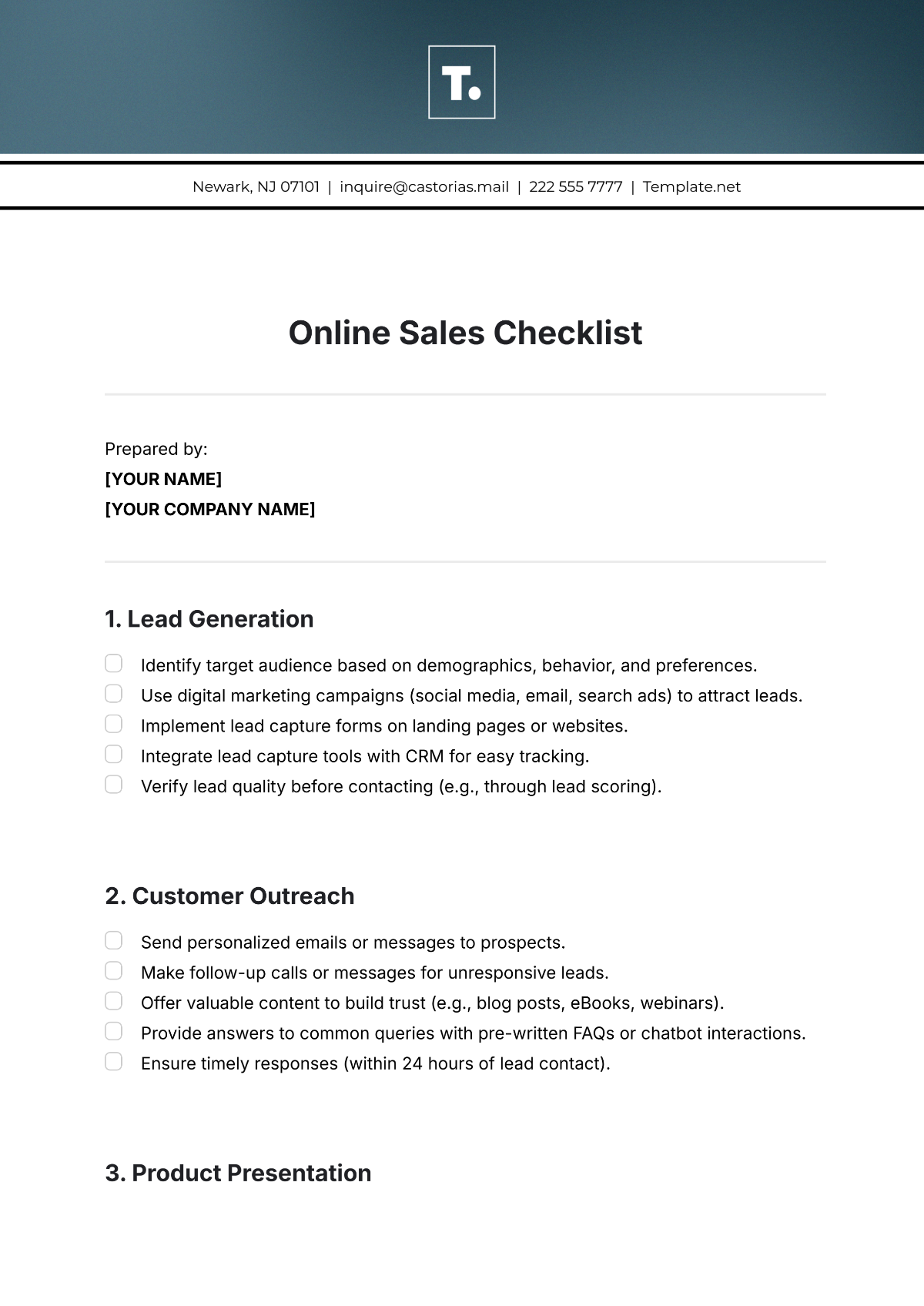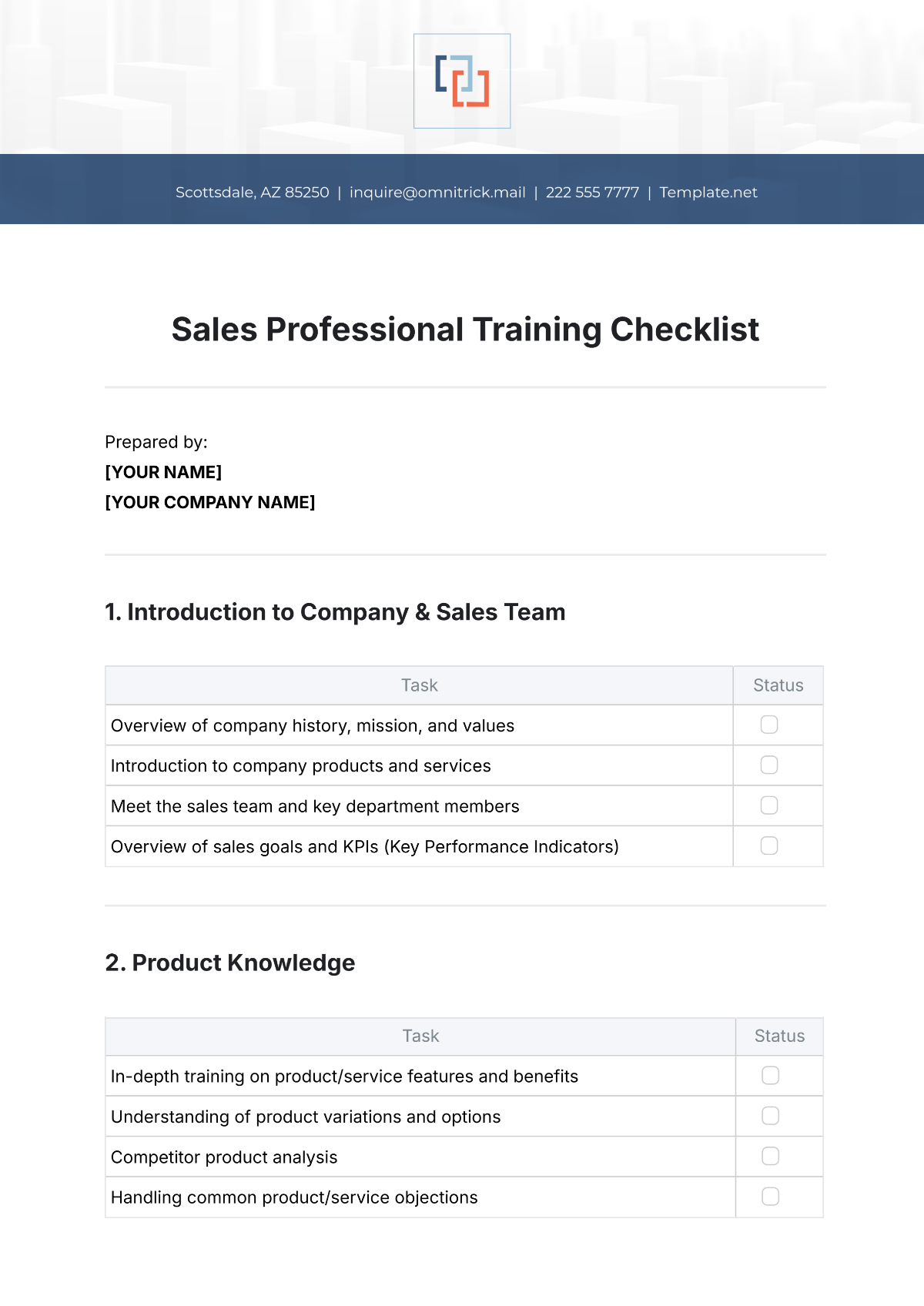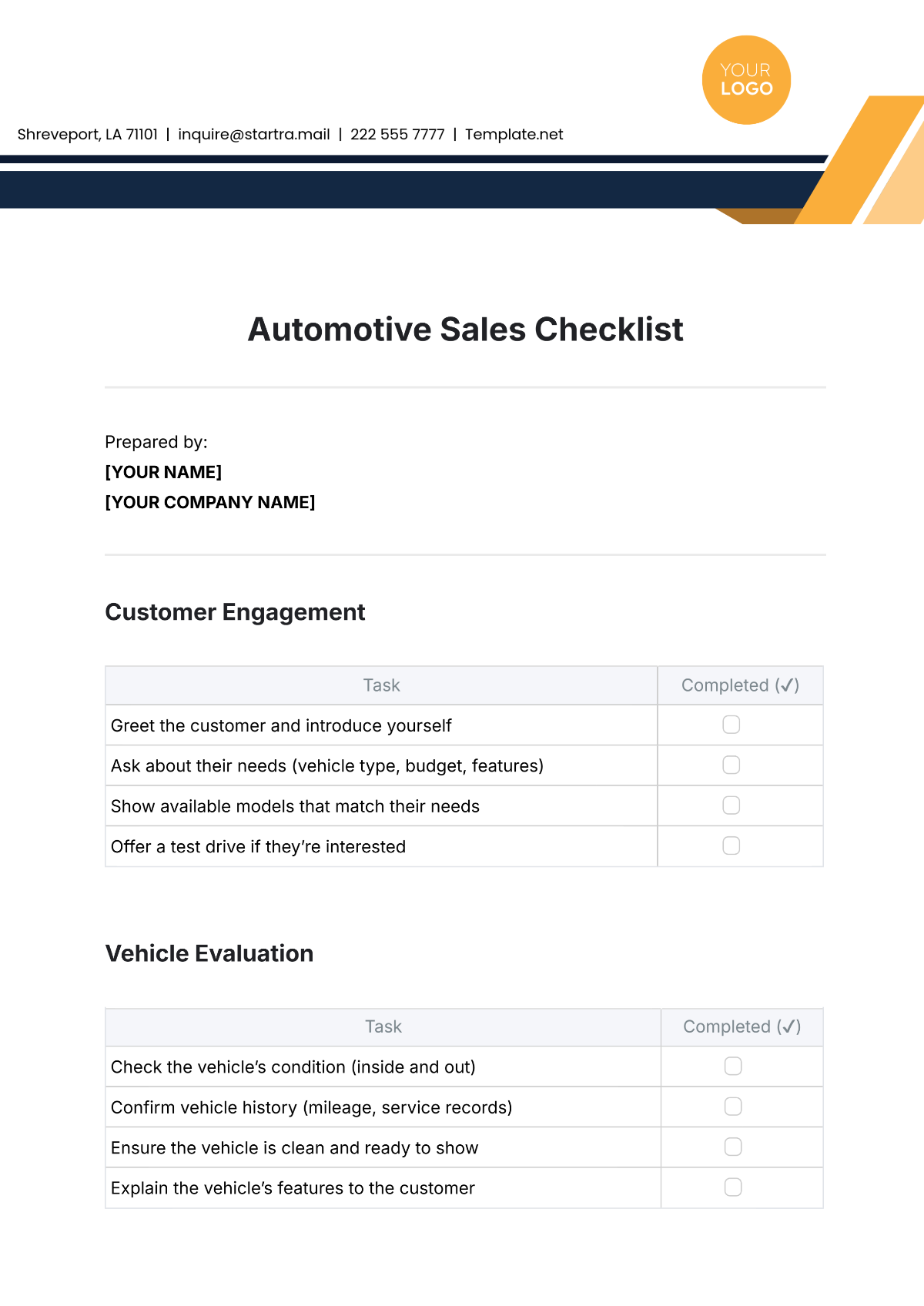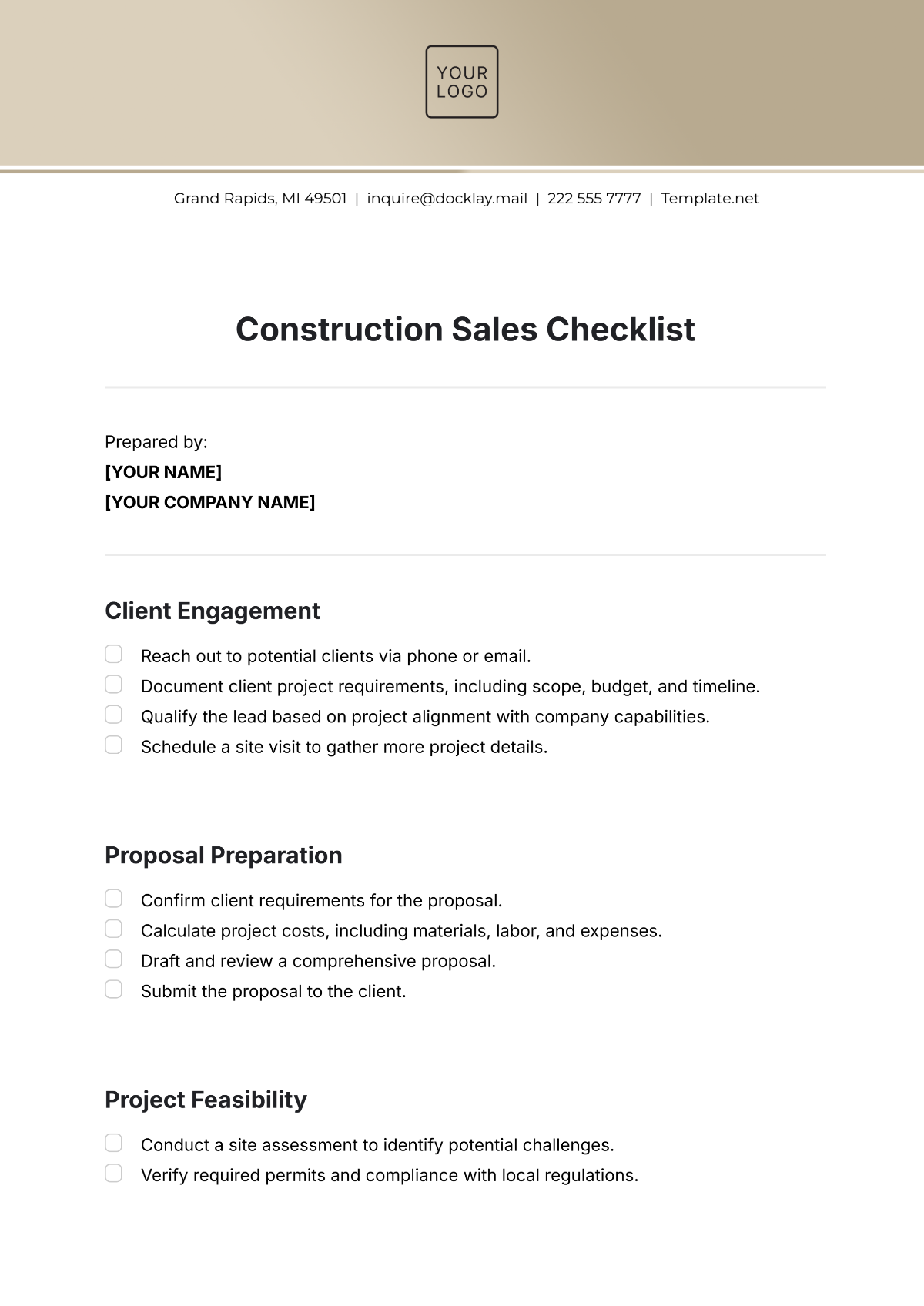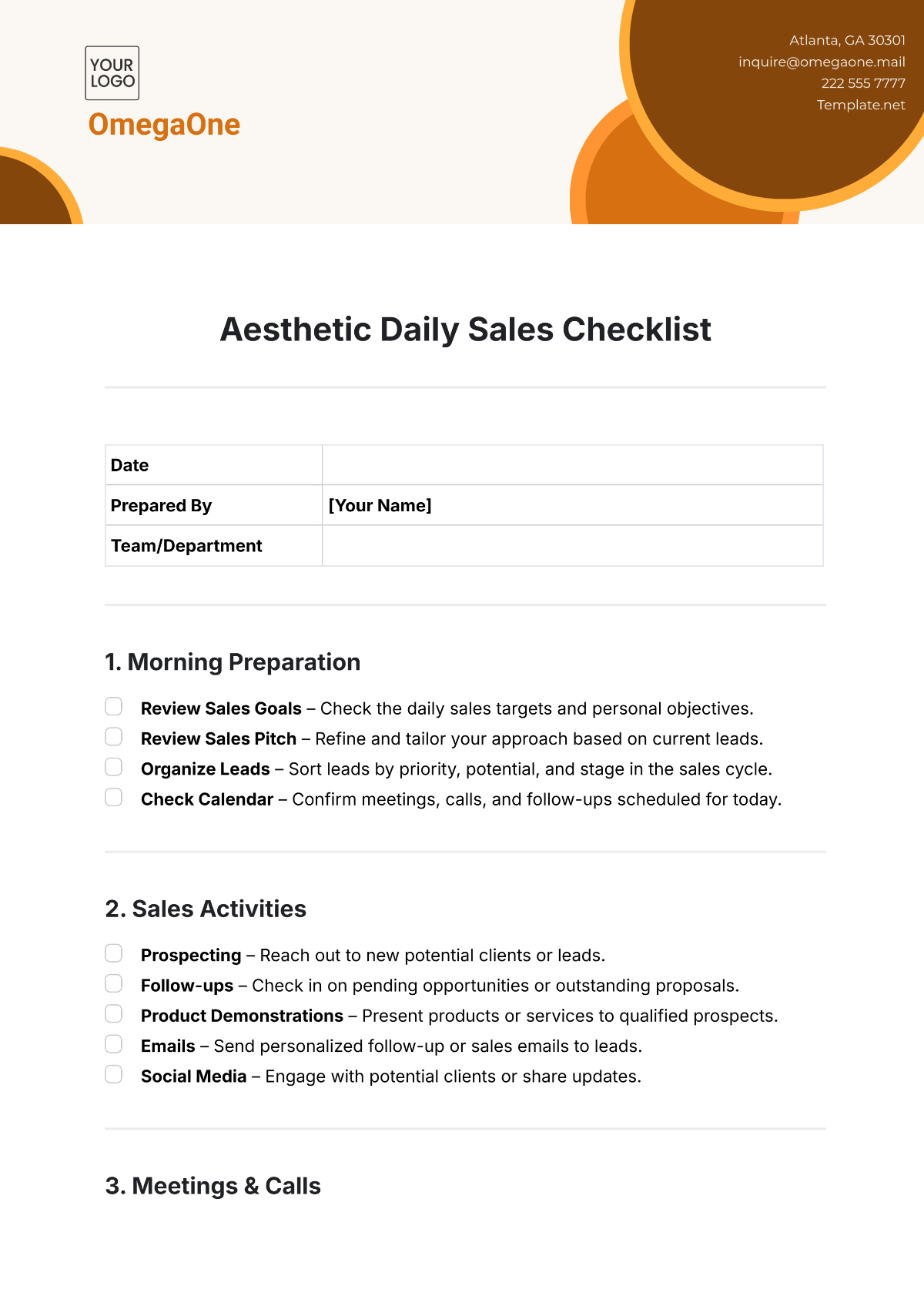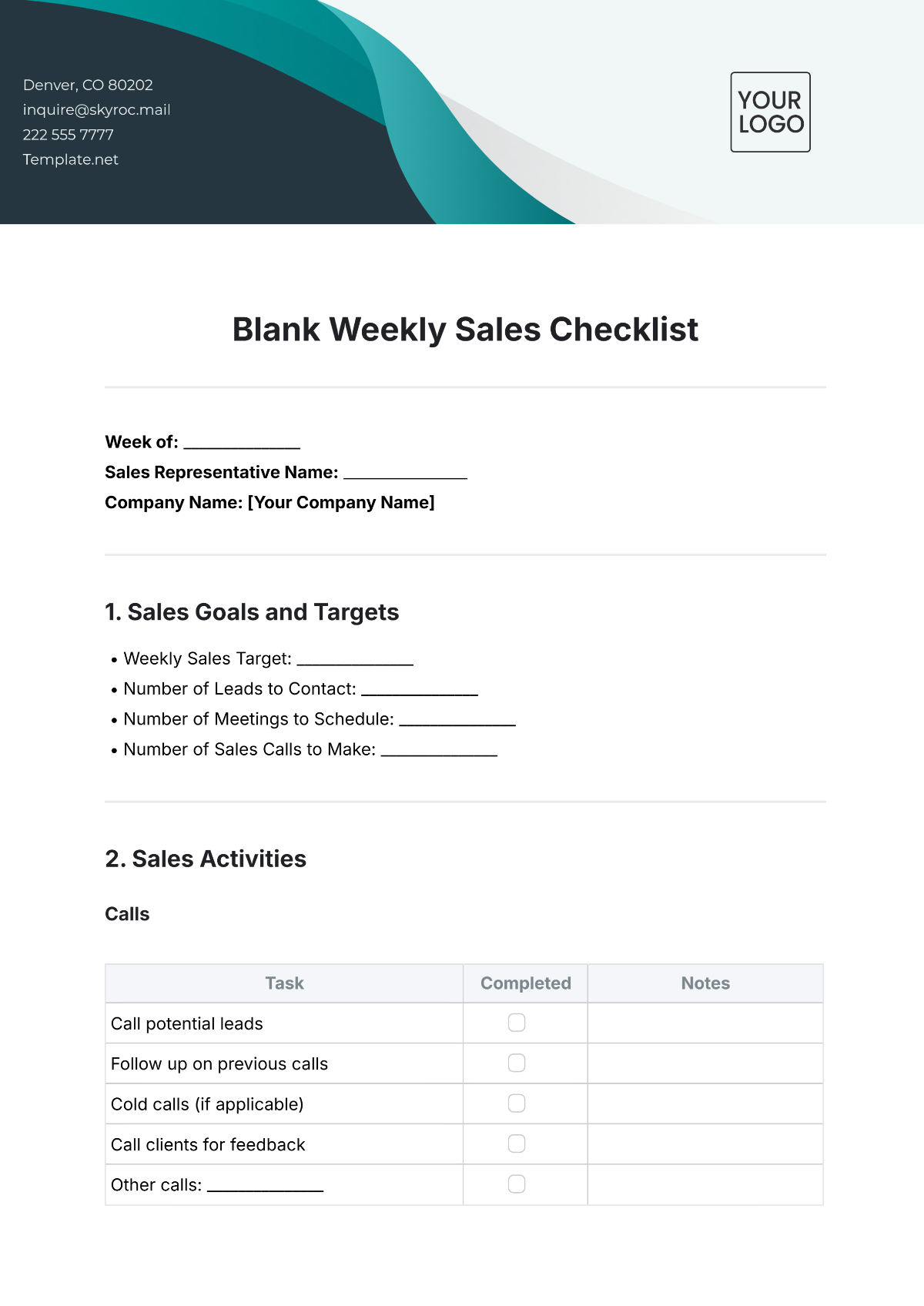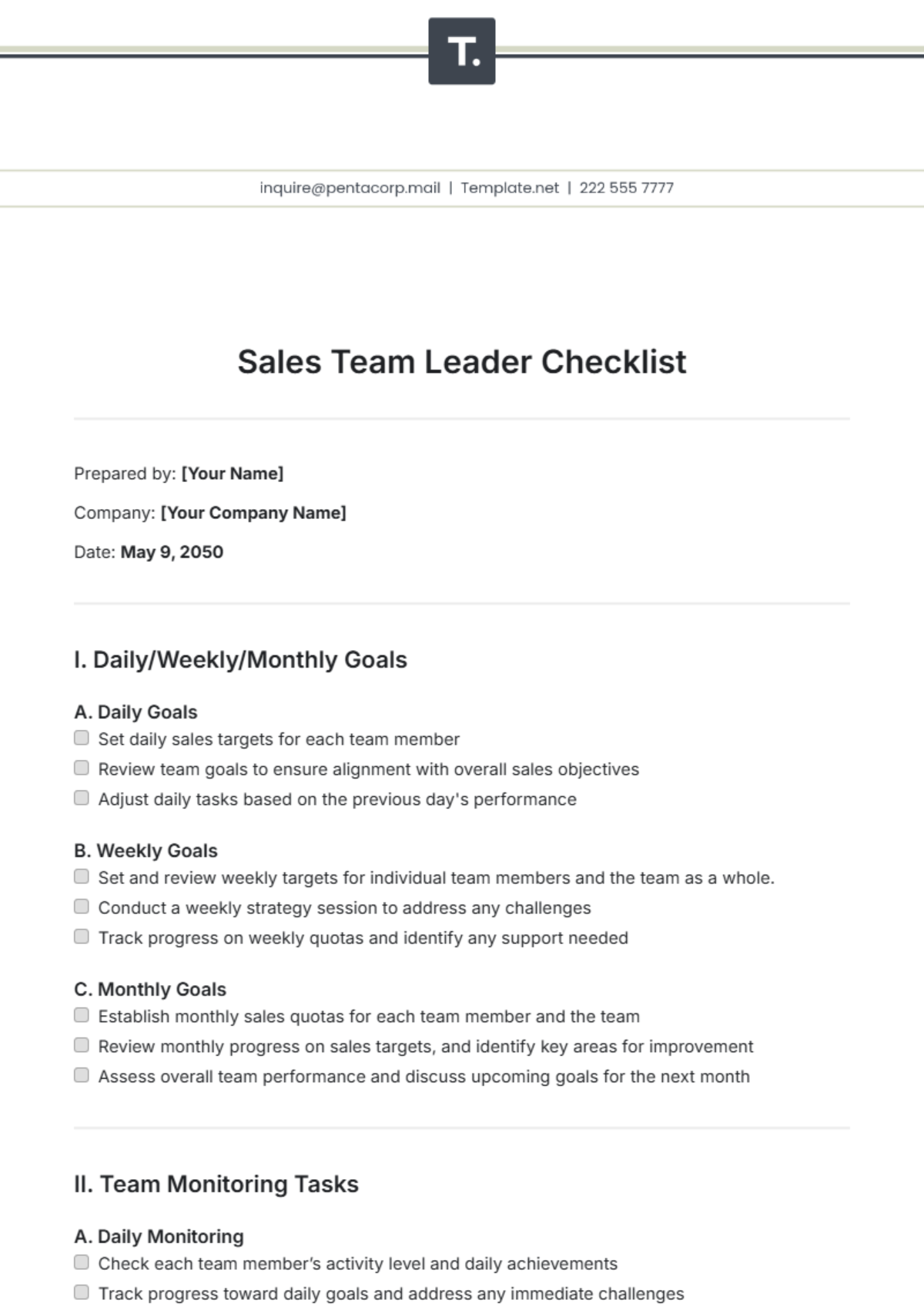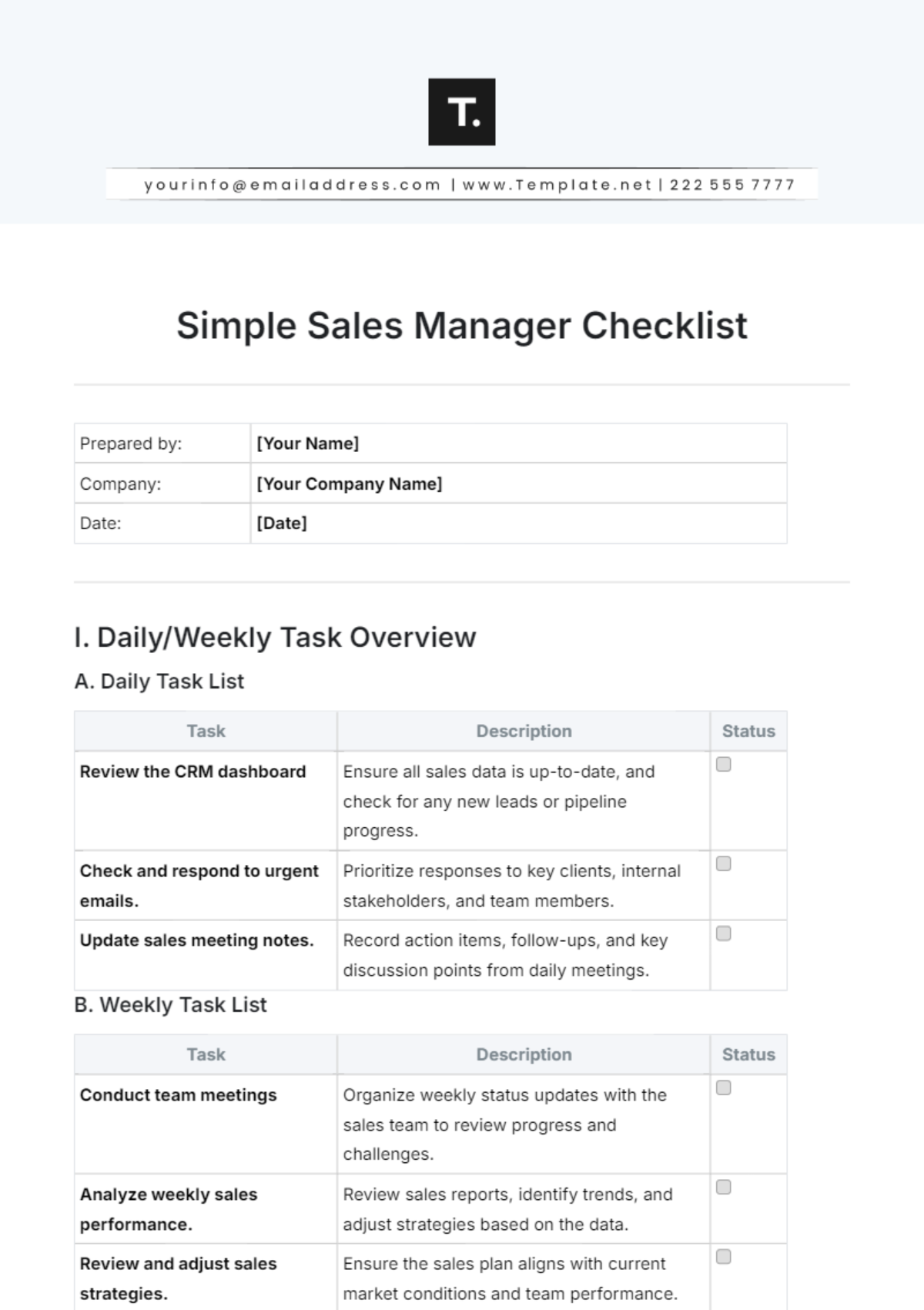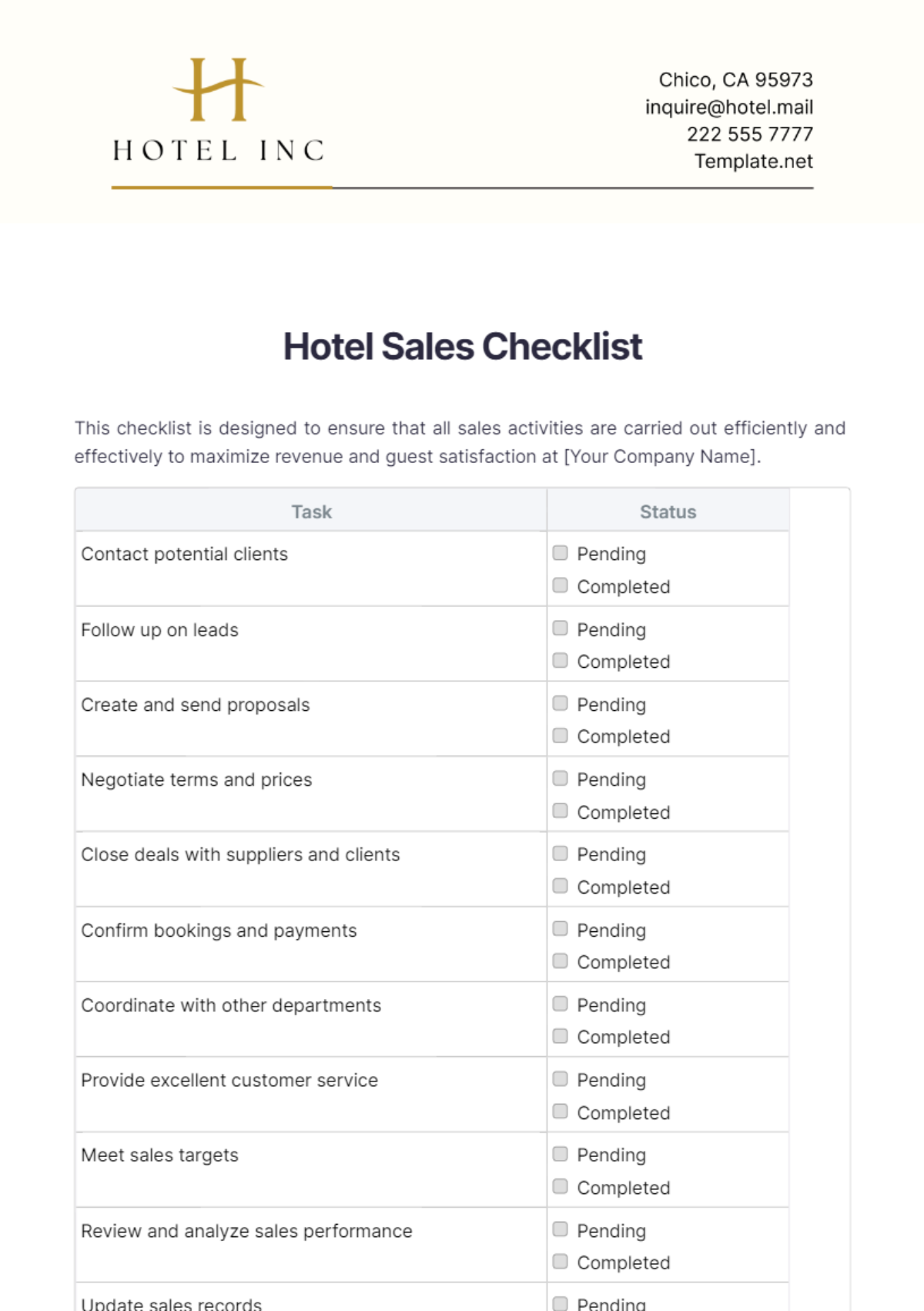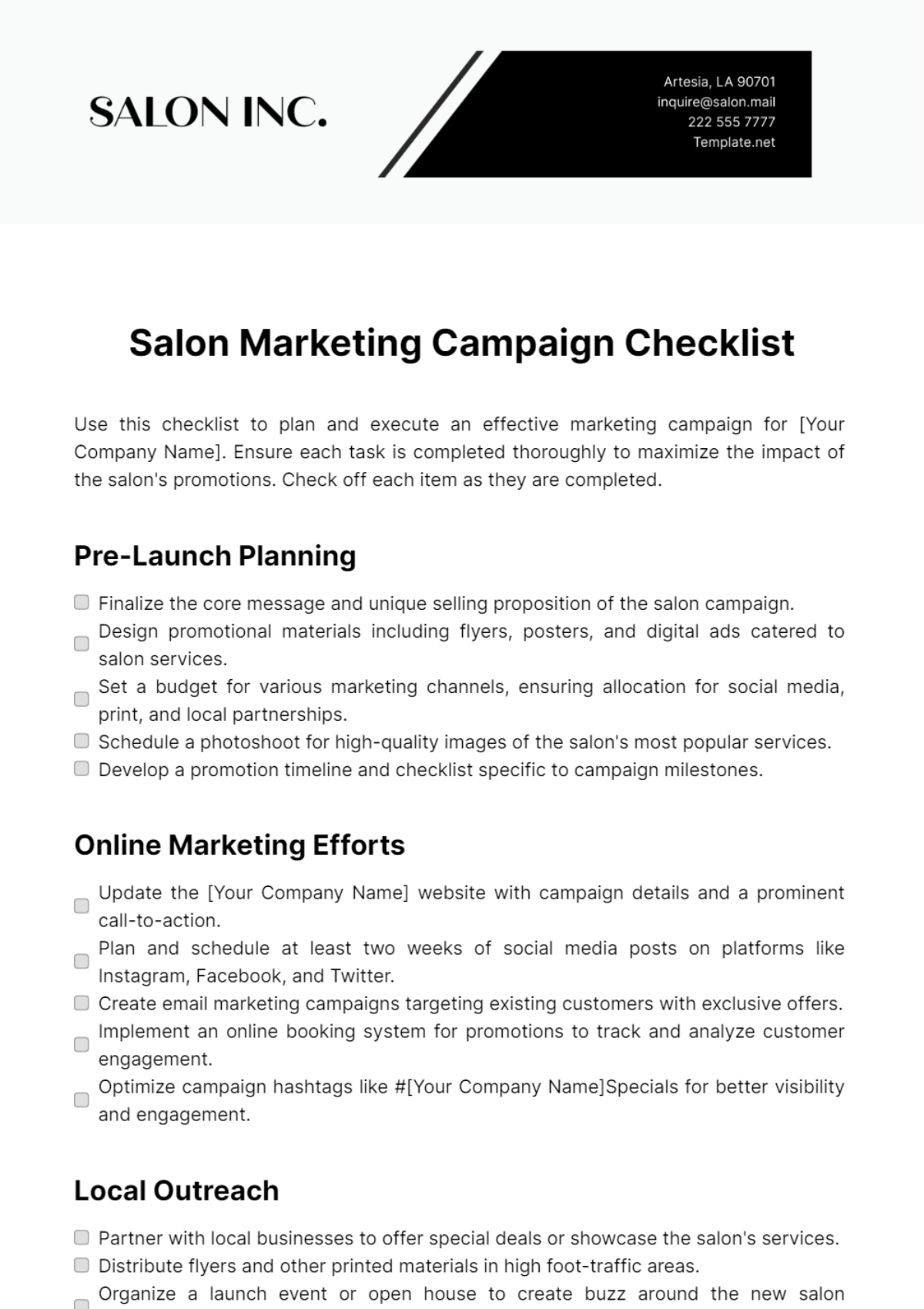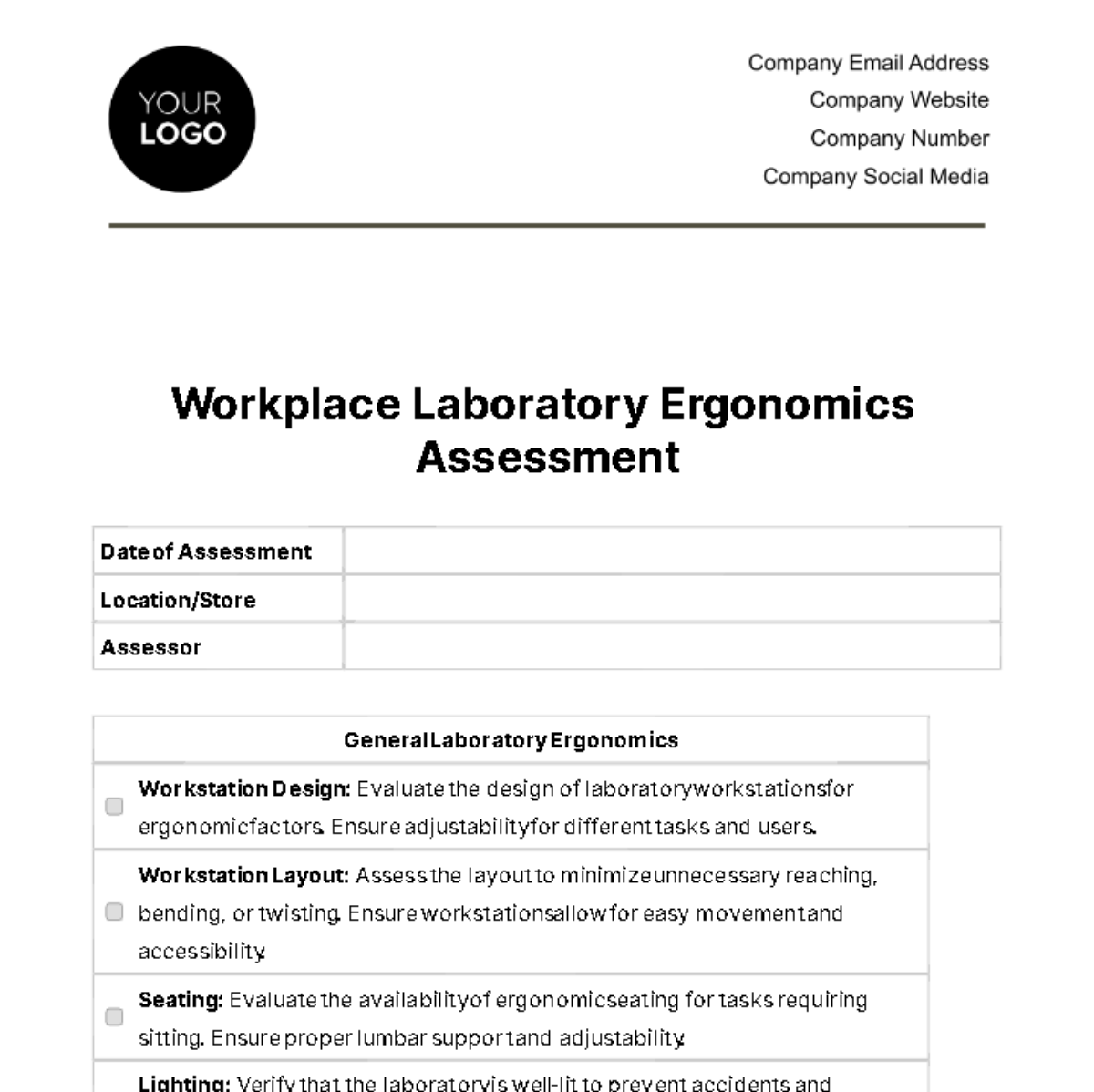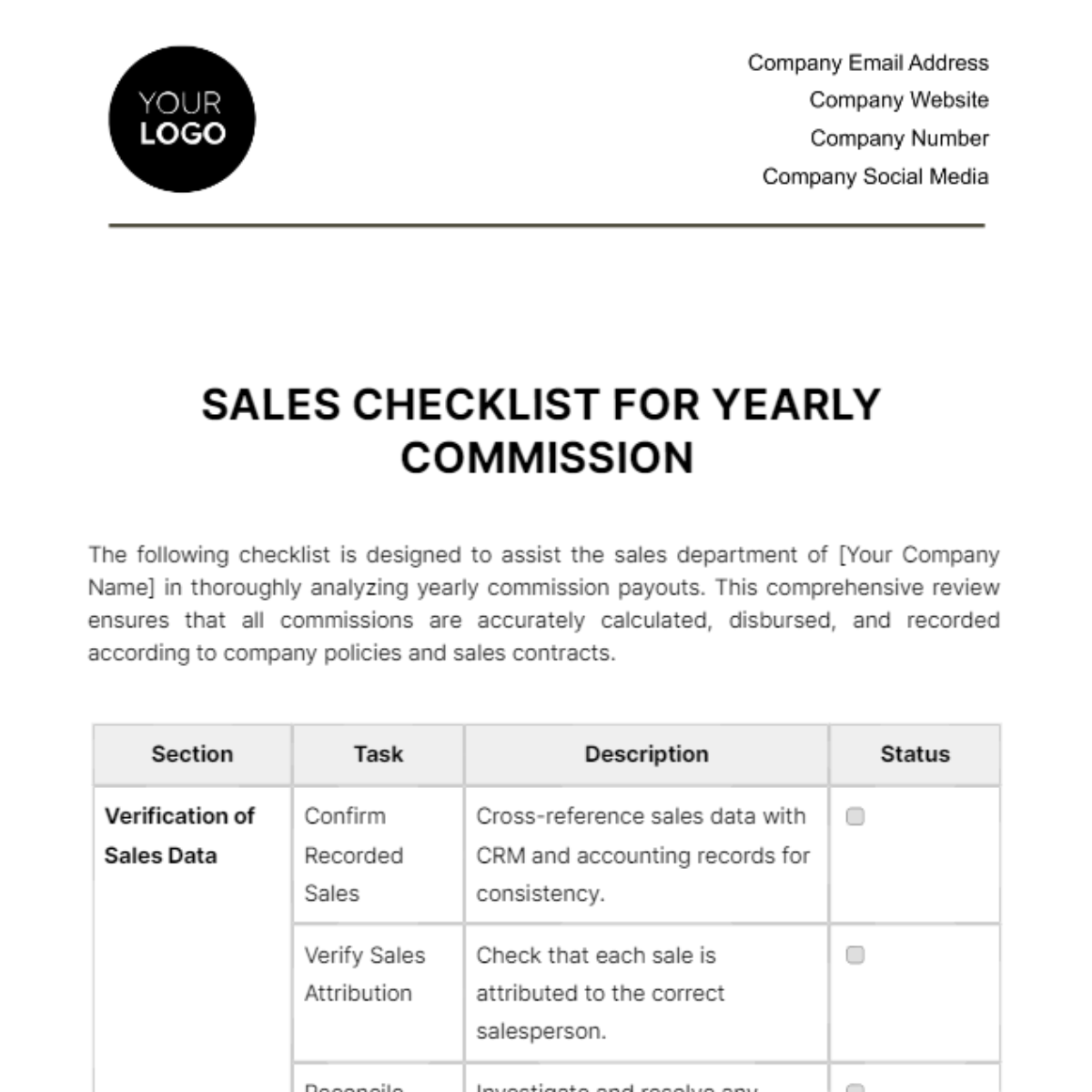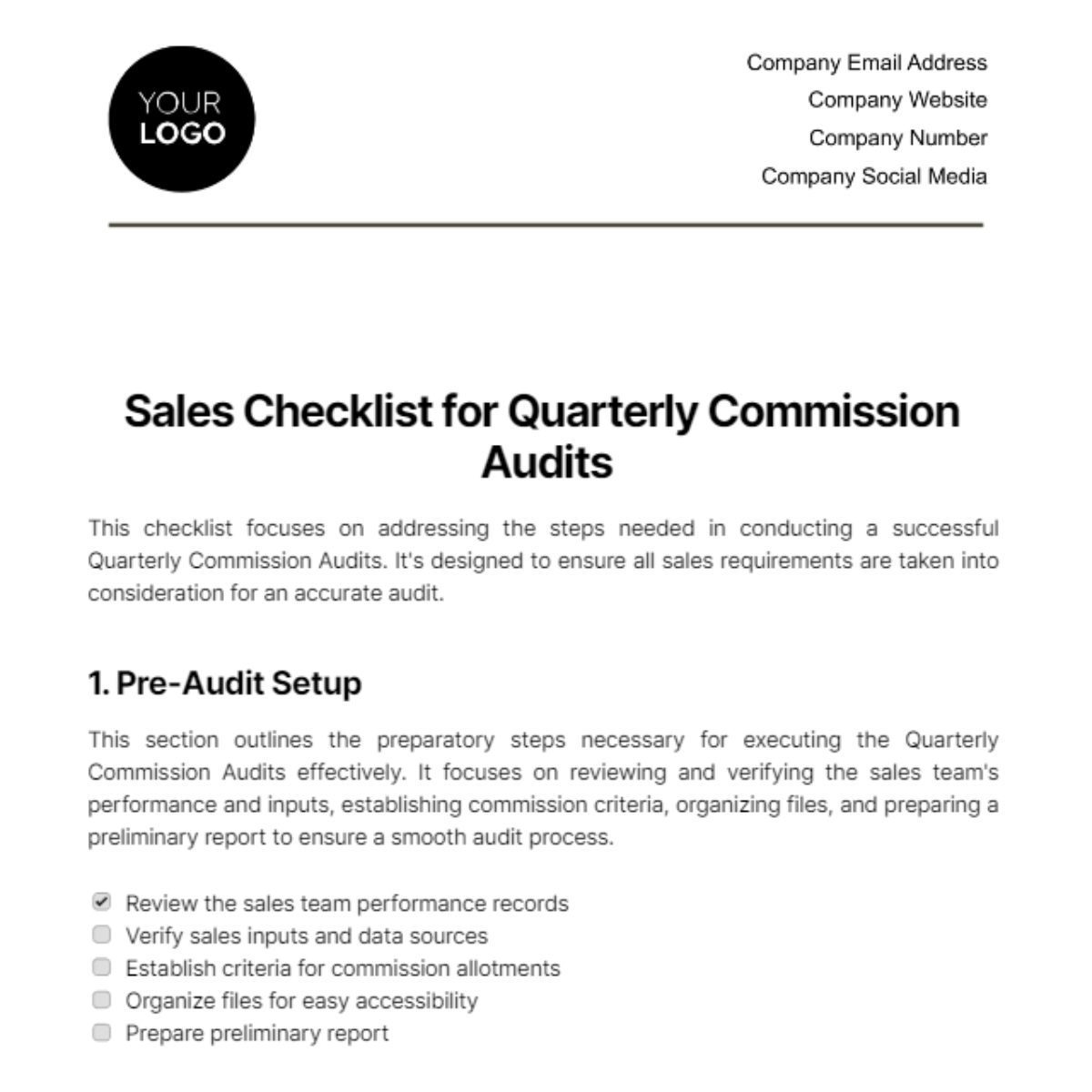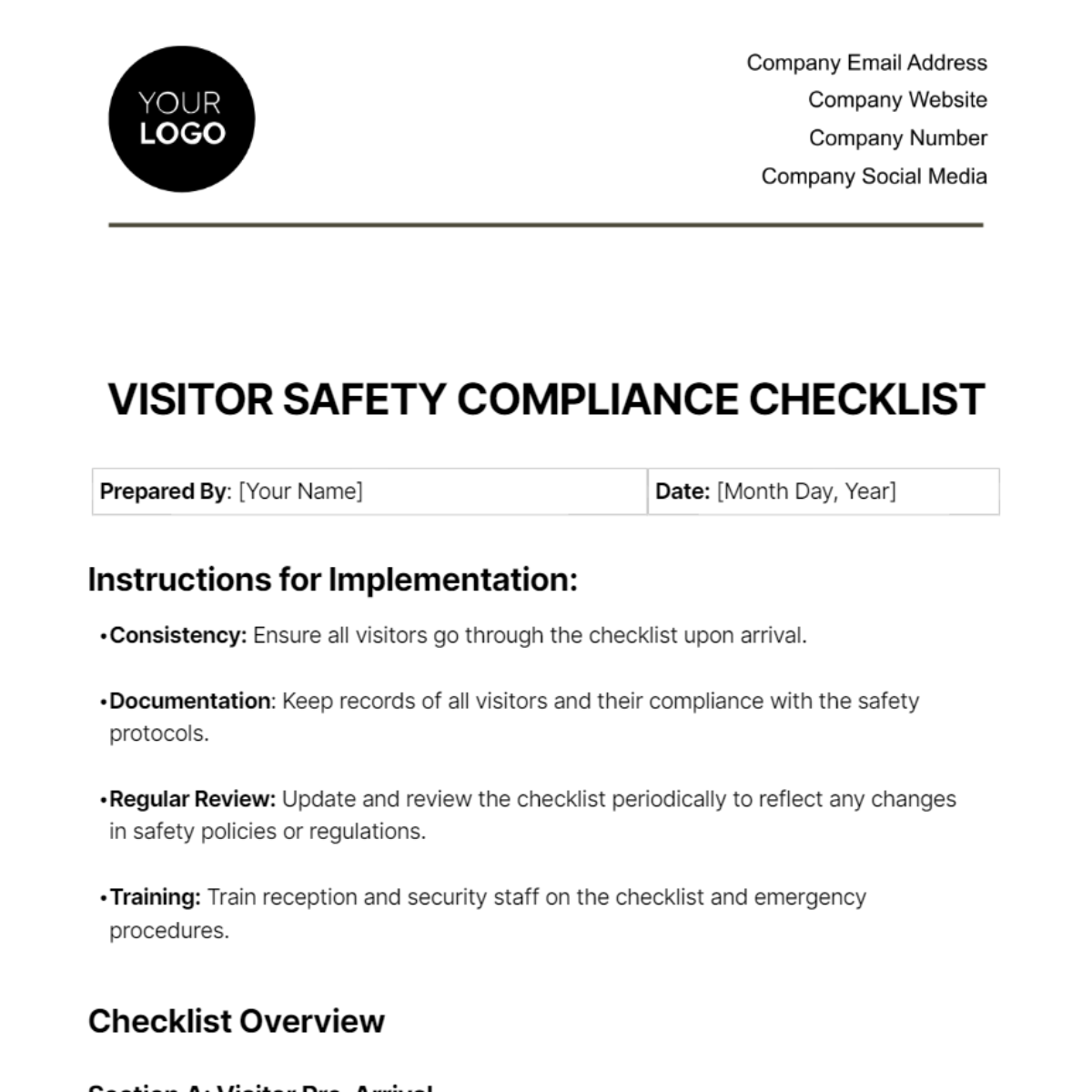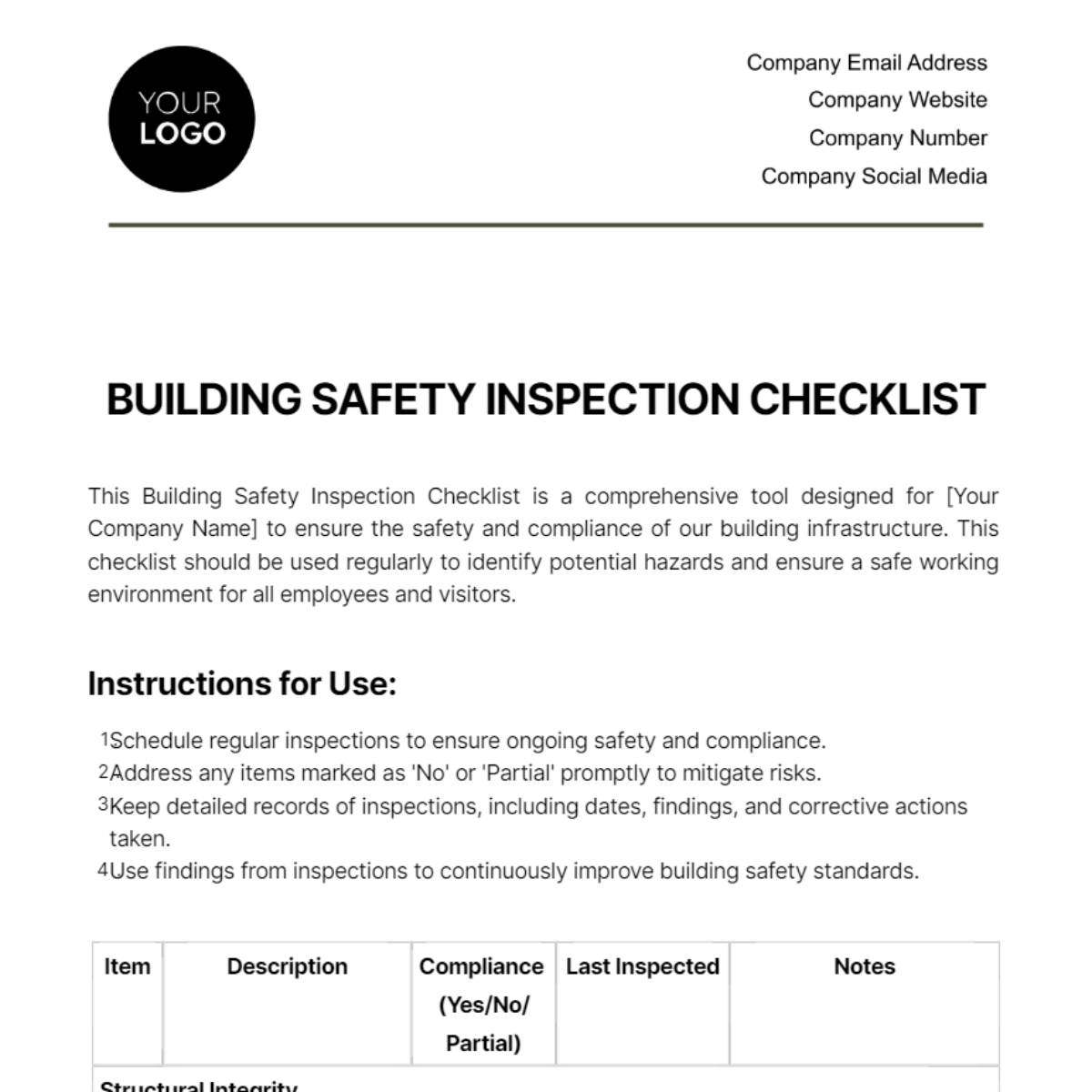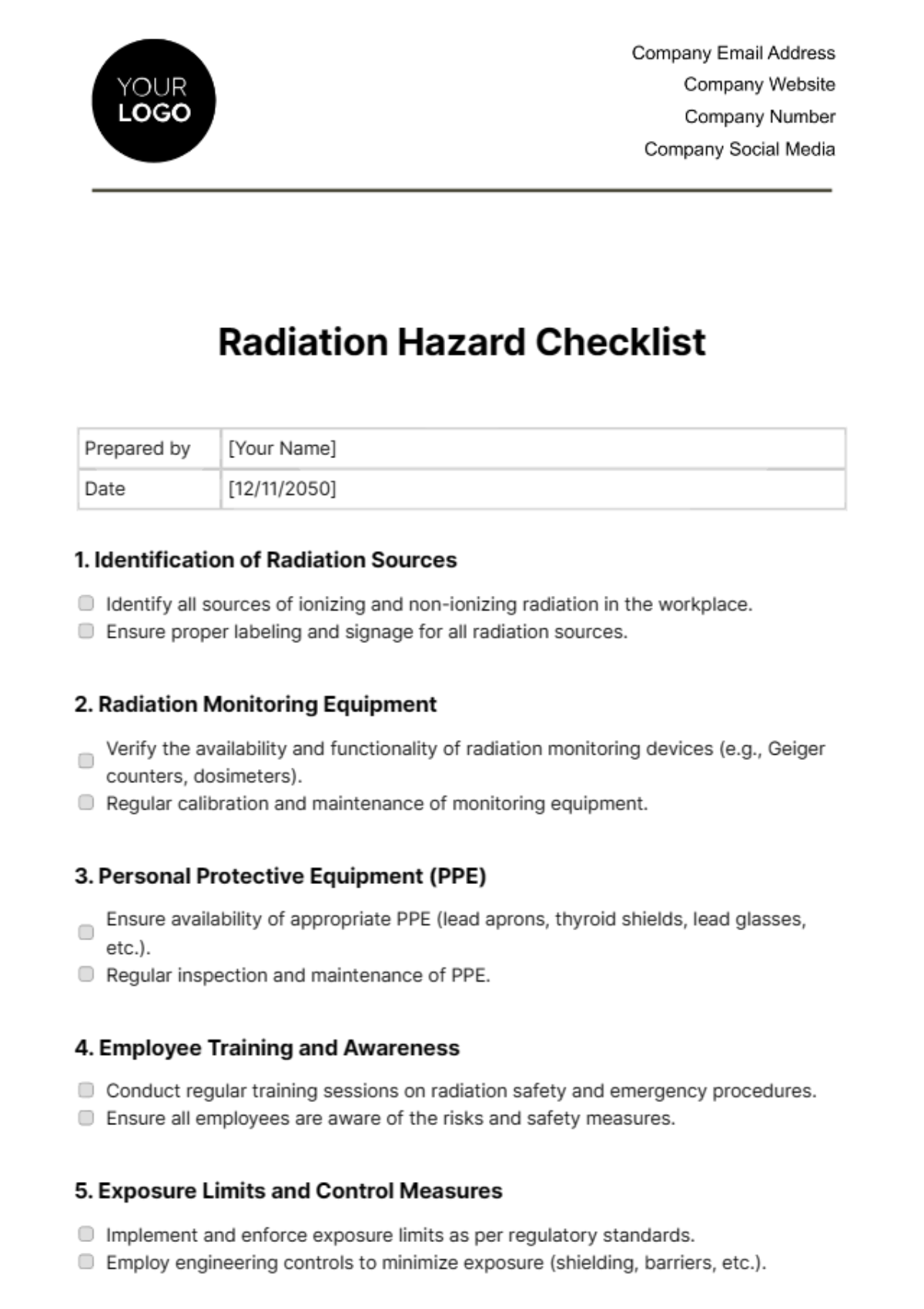Sales Training Content Checklist
Training Program:
Date of Training:
This checklist is designed to ensure comprehensive and effective sales training programs. Use this as a guide while developing and reviewing your training content.
Training Modules
Module 1: Introduction to the Company
Company history and background: Founded in [Year], our company, [Your Company Name], has a rich history of innovation in software solutions.
Mission and values: Our mission is to empower businesses with cutting-edge technology. Our values include integrity, customer-centricity, and innovation.
Products or services overview: We offer a suite of software solutions for industries such as healthcare and finance.
Unique selling points (USPs): Our solutions are known for their scalability, security, and ease of use.
Module 2: Understanding the Sales Process
Overview of the sales process: The sales process encompasses prospecting, initial contact, needs analysis, presentation, handling objections, closing deals, and post-sale relationship management.
Lead generation: Prospects are generated through online marketing, referrals, and industry events.
Prospecting and qualifying leads: Prospects are assessed for fit and potential.
Needs analysis and understanding customer pain points: In-depth discussions with clients to identify their unique pain points.
Presentation and demonstration: Presenting our solutions effectively to address client needs.
Handling objections: Strategies for overcoming common objections.
Closing deals: Effective techniques to secure deals.
Post-sale relationship management: Ensuring customer satisfaction and seeking upsell opportunities.
Module 3: Product Knowledge
In-depth knowledge of products or services: Our product suite includes [specific product names] known for [product features].
Features and benefits: [Product feature] provides [benefits].
Competitive analysis: Understanding key competitors [competitor names] and their strengths/weaknesses.
Pricing and packages: Our pricing structure includes [pricing details].
Module 4: Sales Techniques and Strategies
Consultative selling: Focusing on understanding client needs and tailoring solutions.
Relationship building: Building trust and rapport with clients.
Handling objections and rejections: Strategies for addressing objections professionally.
Negotiation skills: Techniques for successful negotiations.
Upselling and cross-selling: Identifying opportunities to offer additional products or services.
Module 5: Effective Communication
Active listening: Engaging actively with clients, asking probing questions.
Building rapport with customers: Establishing a connection and trust.
Effective questioning techniques: Skillful use of open-ended questions.
Non-verbal communication: Understanding and utilizing body language cues.
Module 6: Customer Relationship Management
Post-sale support and follow-up: Ensuring client needs are met post-sale.
Handling customer complaints and issues: Addressing issues promptly and professionally.
Building long-term relationships: Strategies for nurturing long-lasting relationships.
Customer loyalty and retention strategies: Techniques to foster loyalty.
Module 7: Time Management for Sales Professionals
Prioritizing leads and tasks: Focusing on high-potential leads and critical tasks.
Time-blocking for productivity: Allocating time effectively for tasks.
Avoiding time-wasting activities: Strategies for eliminating distractions.
Module 8: Sales Technology and Tools
CRM systems and their use: Utilizing our CRM system for lead tracking and management.
Sales analytics and reporting: Analyzing sales data to refine strategies.
Sales automation tools: Leveraging automation for efficiency.
Effective use of email and social media in sales: Utilizing email and social media channels for communication.
Module 9: Legal and Ethical Considerations
Compliance with regulations: Adhering to industry and regional regulations.
Ethics in sales: Ensuring ethical sales practices.
Data privacy and confidentiality: Protecting client data and information.
Module 10: Sales Role-Play and Practice
Interactive sales scenarios: Practical scenarios for skill development.
Practice sessions and feedback: Opportunities to practice and receive constructive feedback.
Training Materials
Training manuals and guides
Presentation slides
Case studies and real-life examples
Sales scripts and templates
Role-play exercises
Quizzes and assessments
Prepared By: [Your Name].
